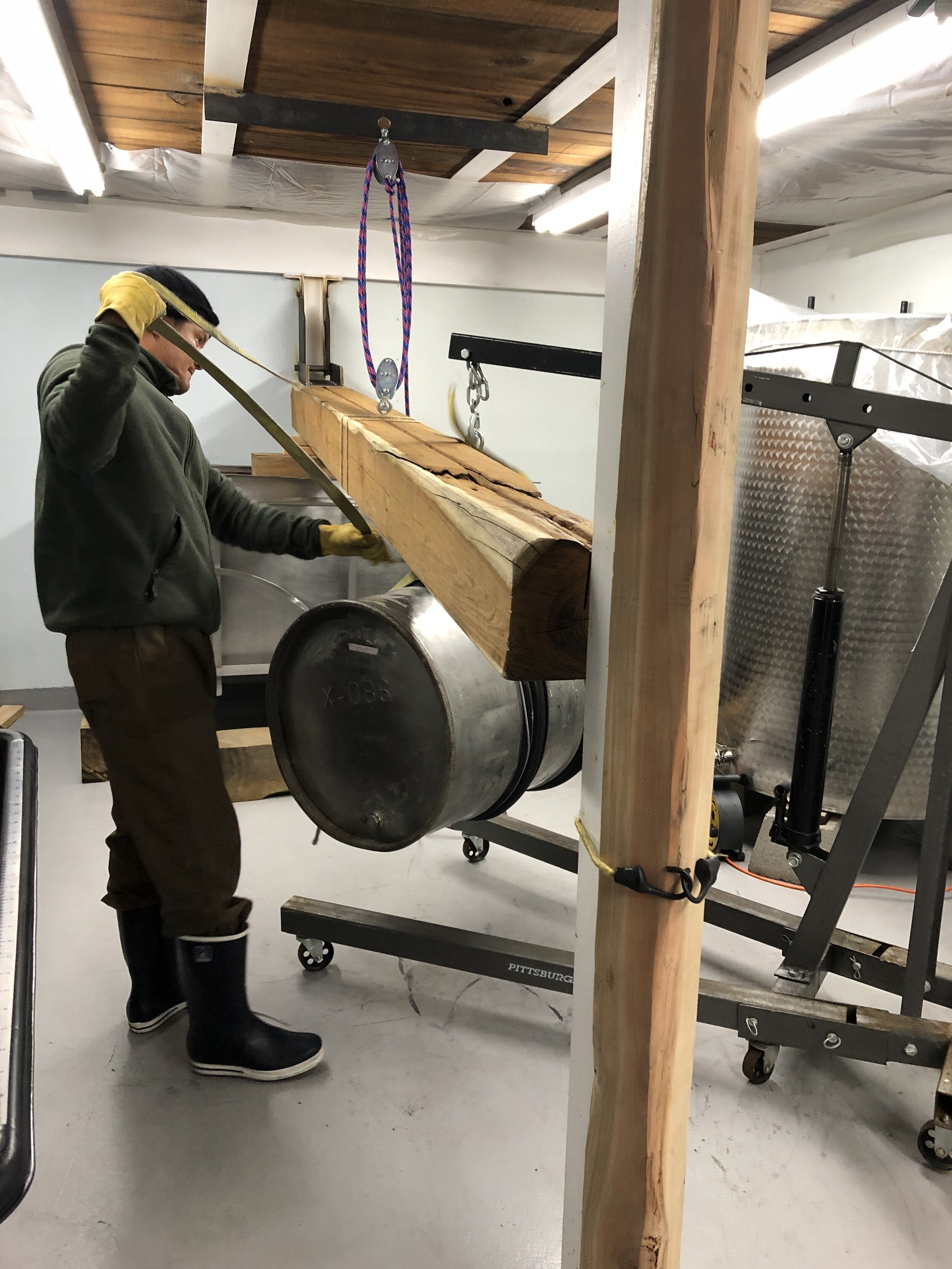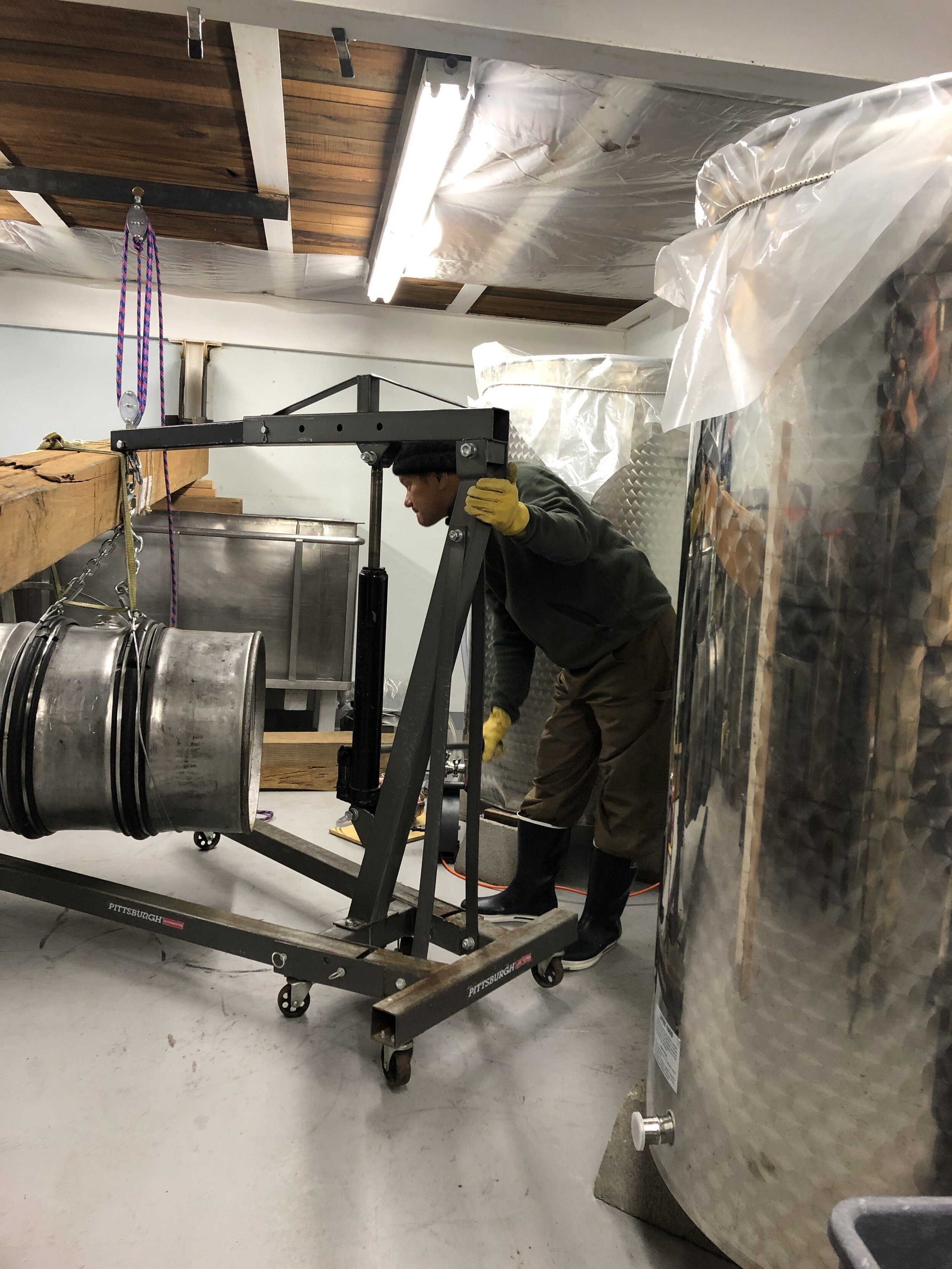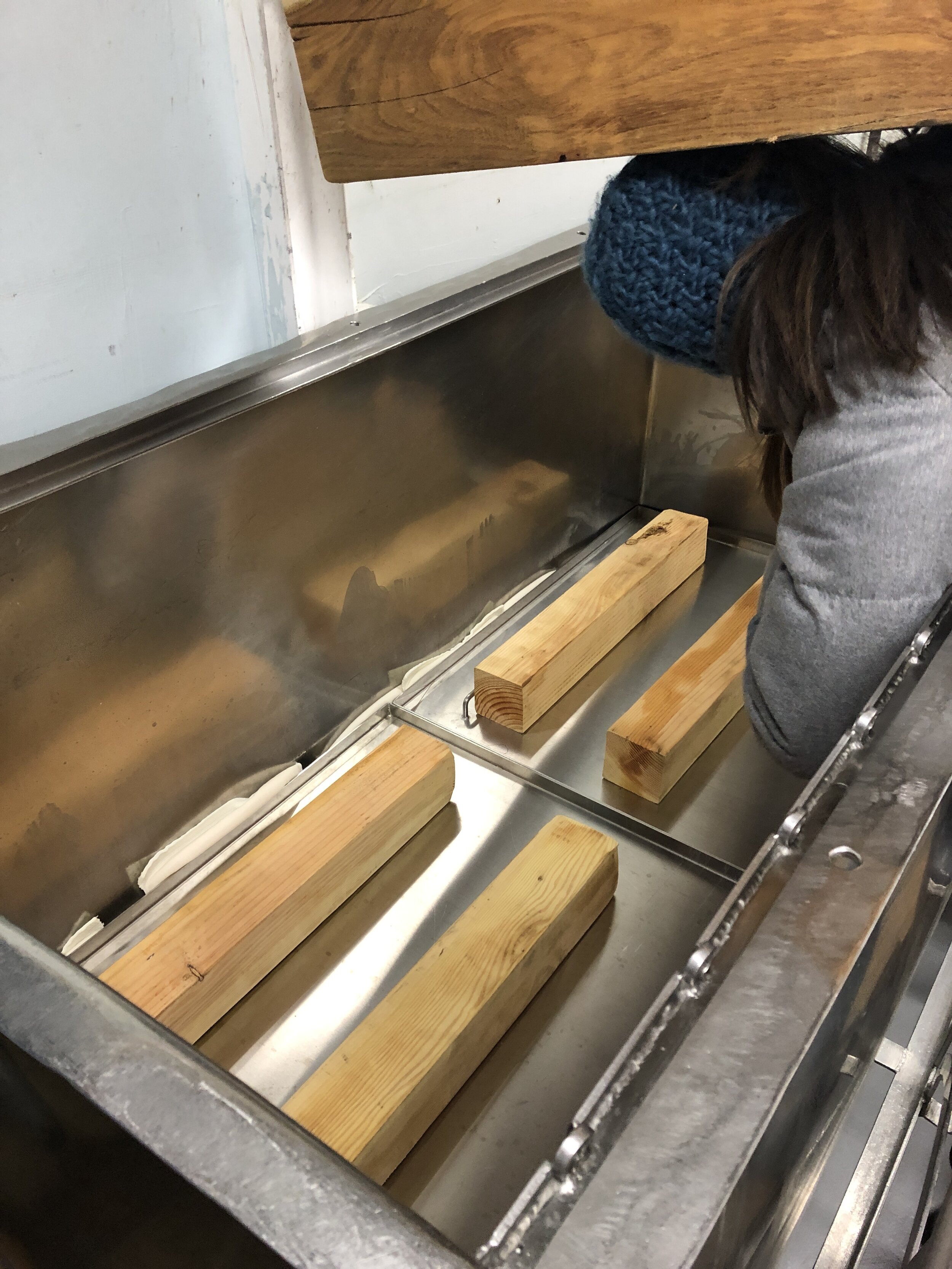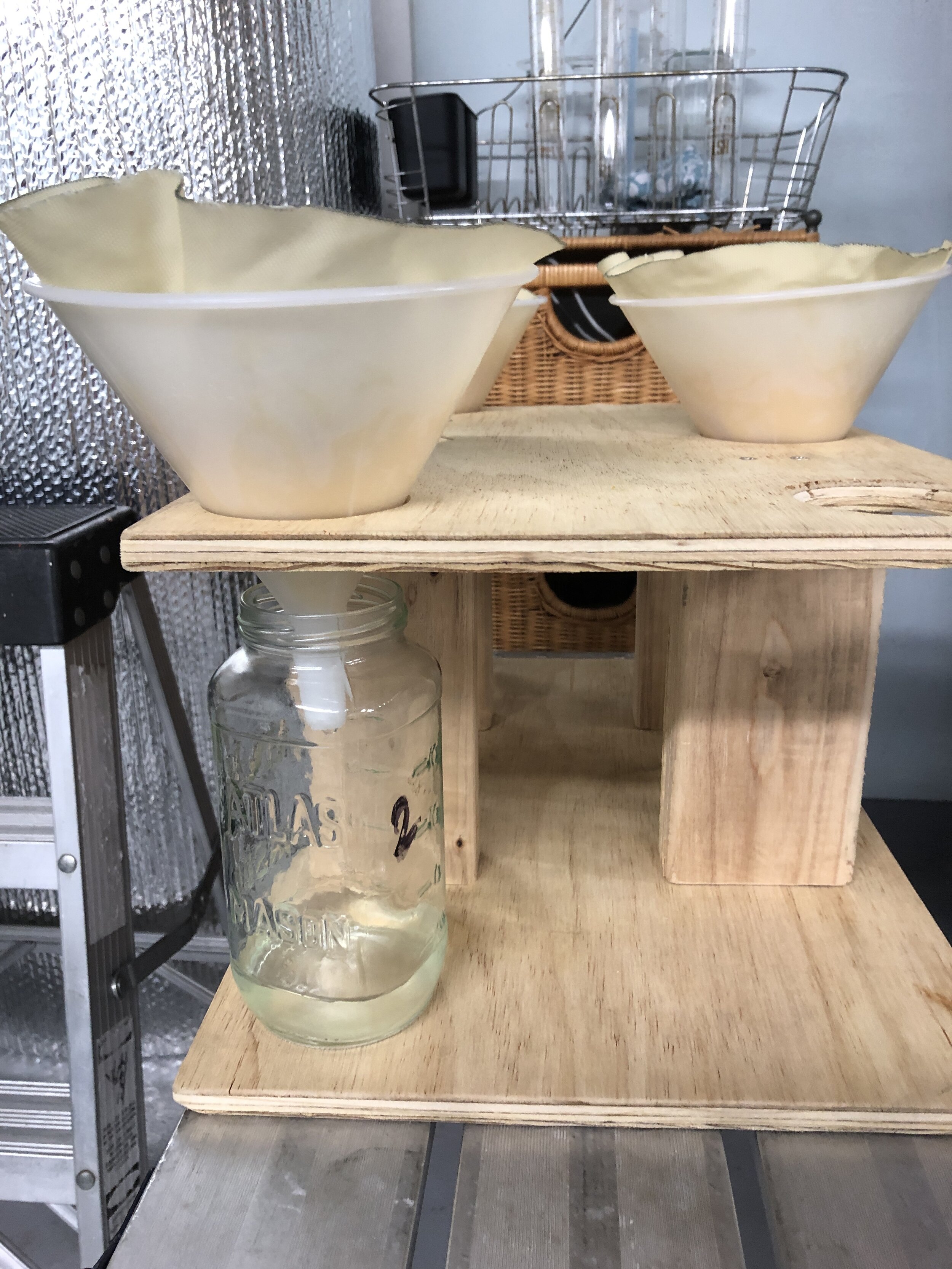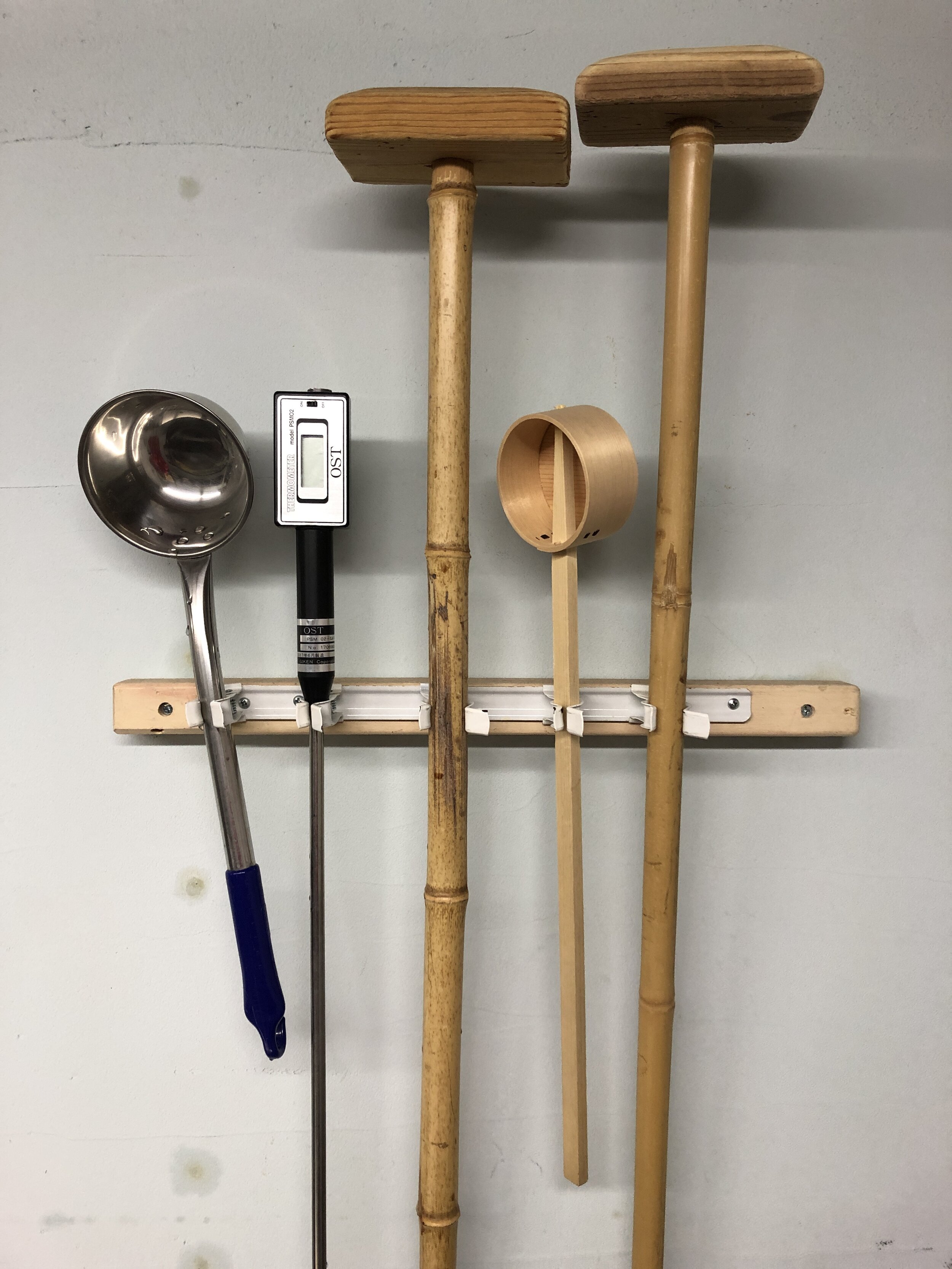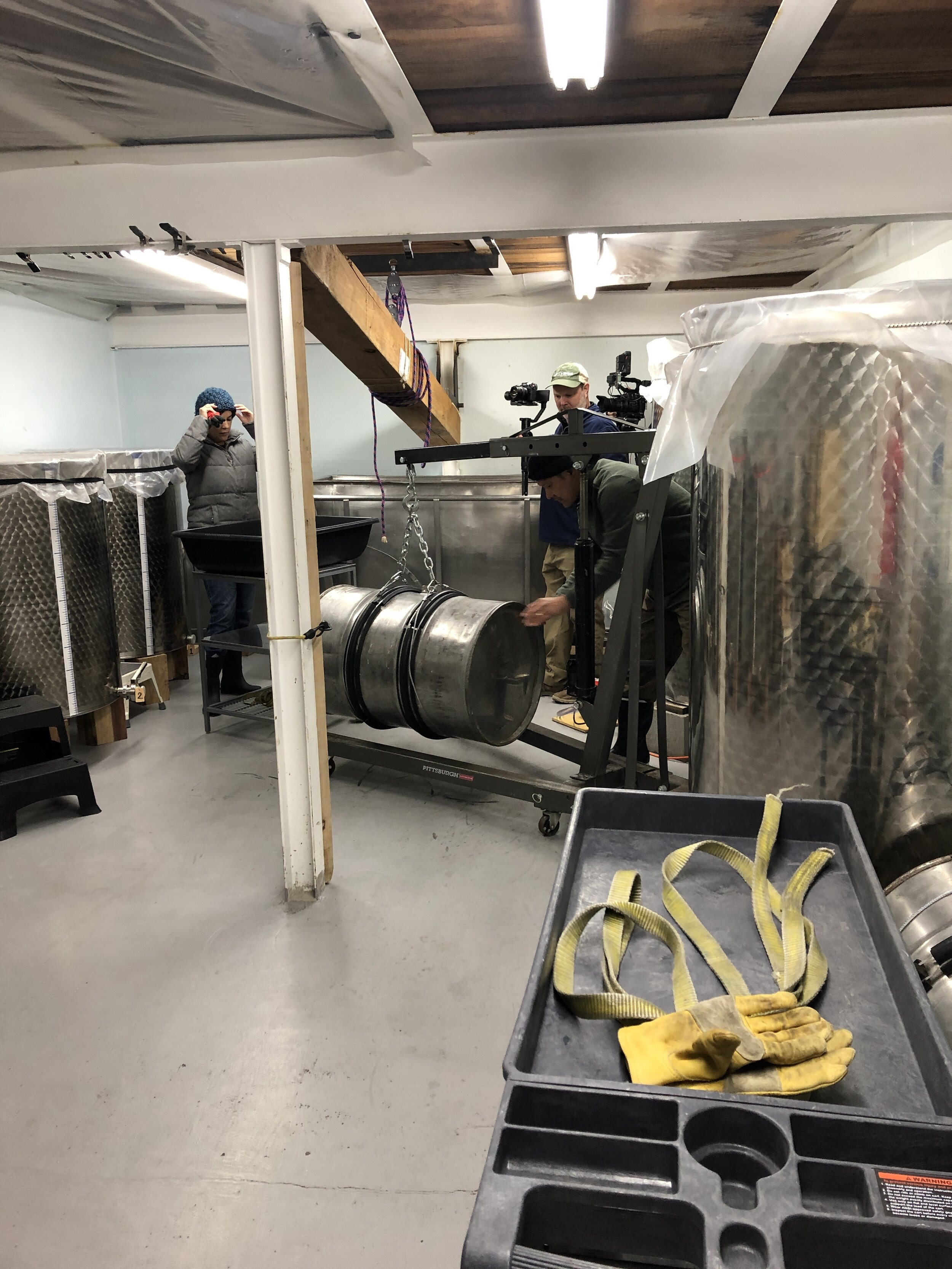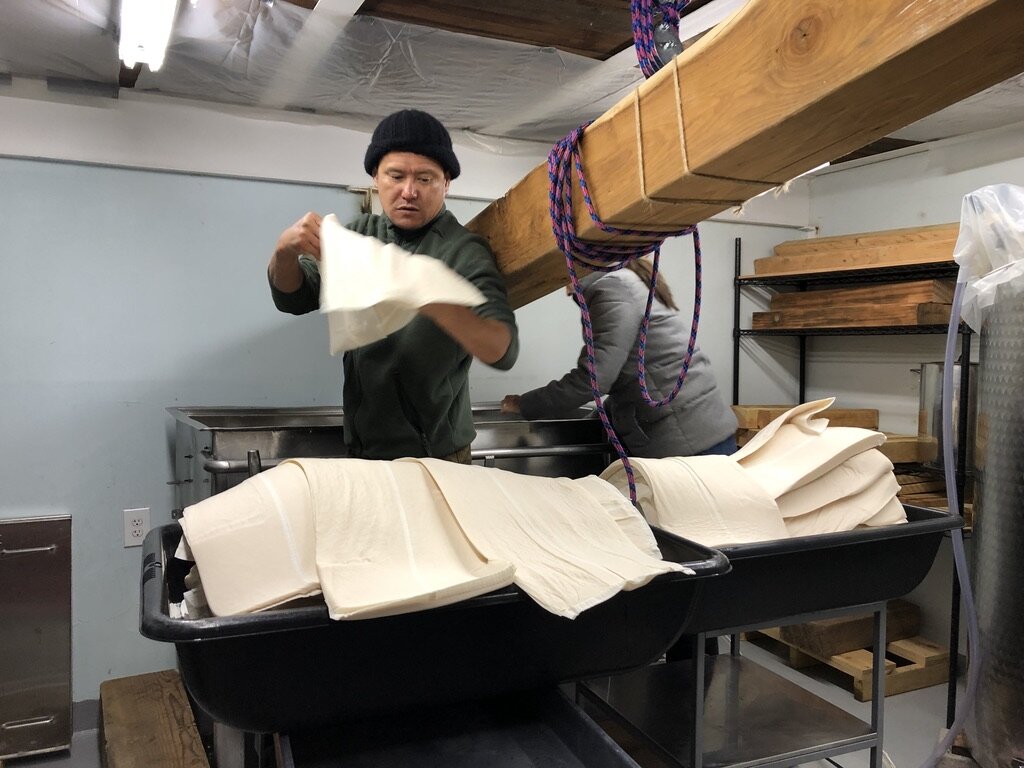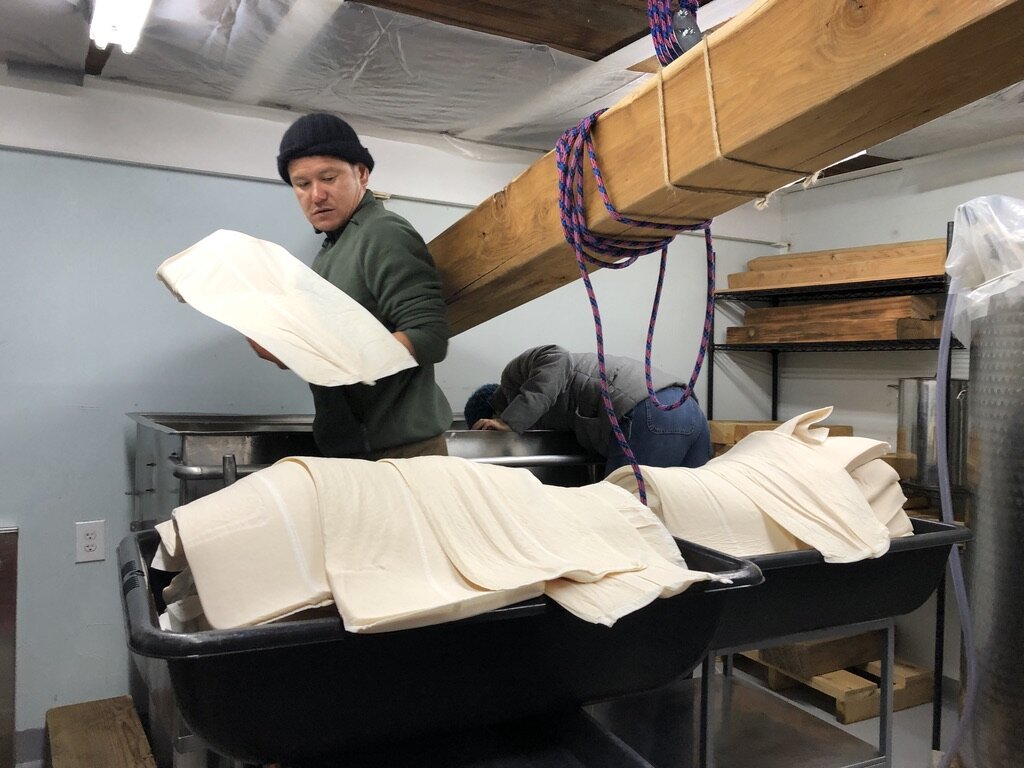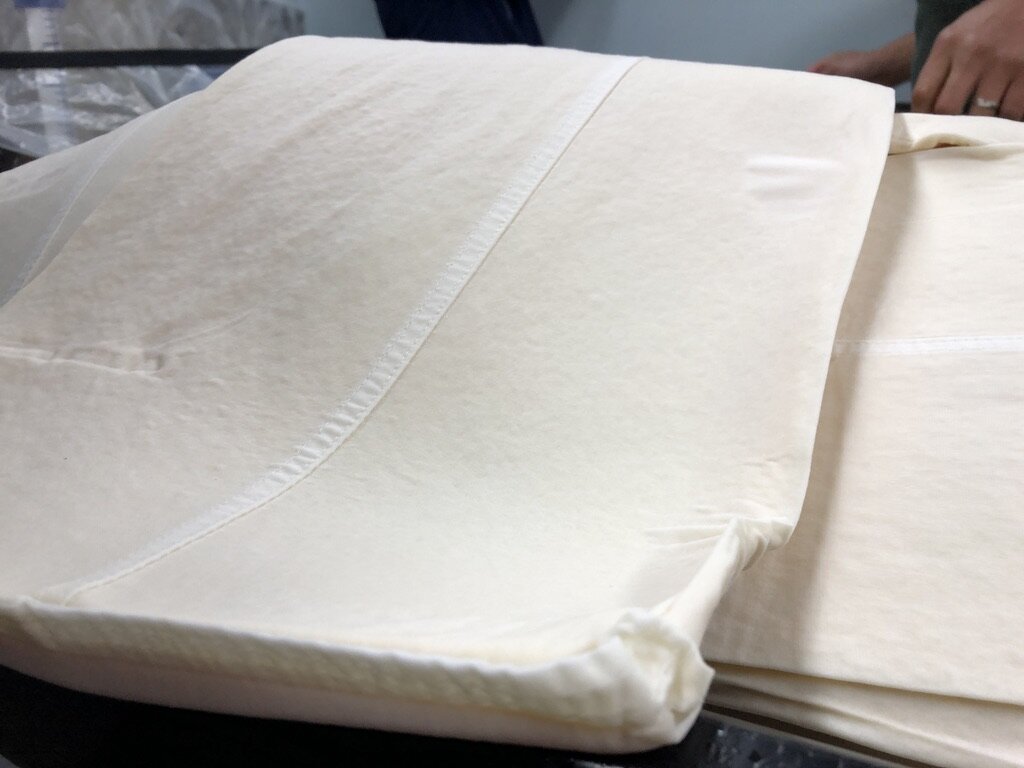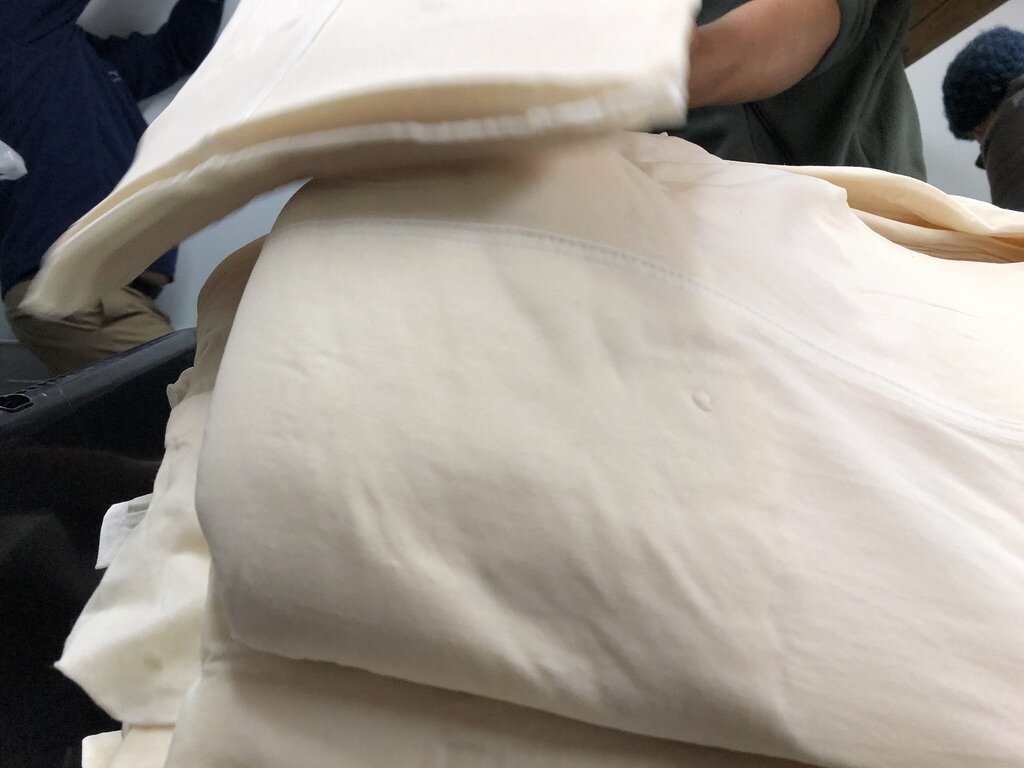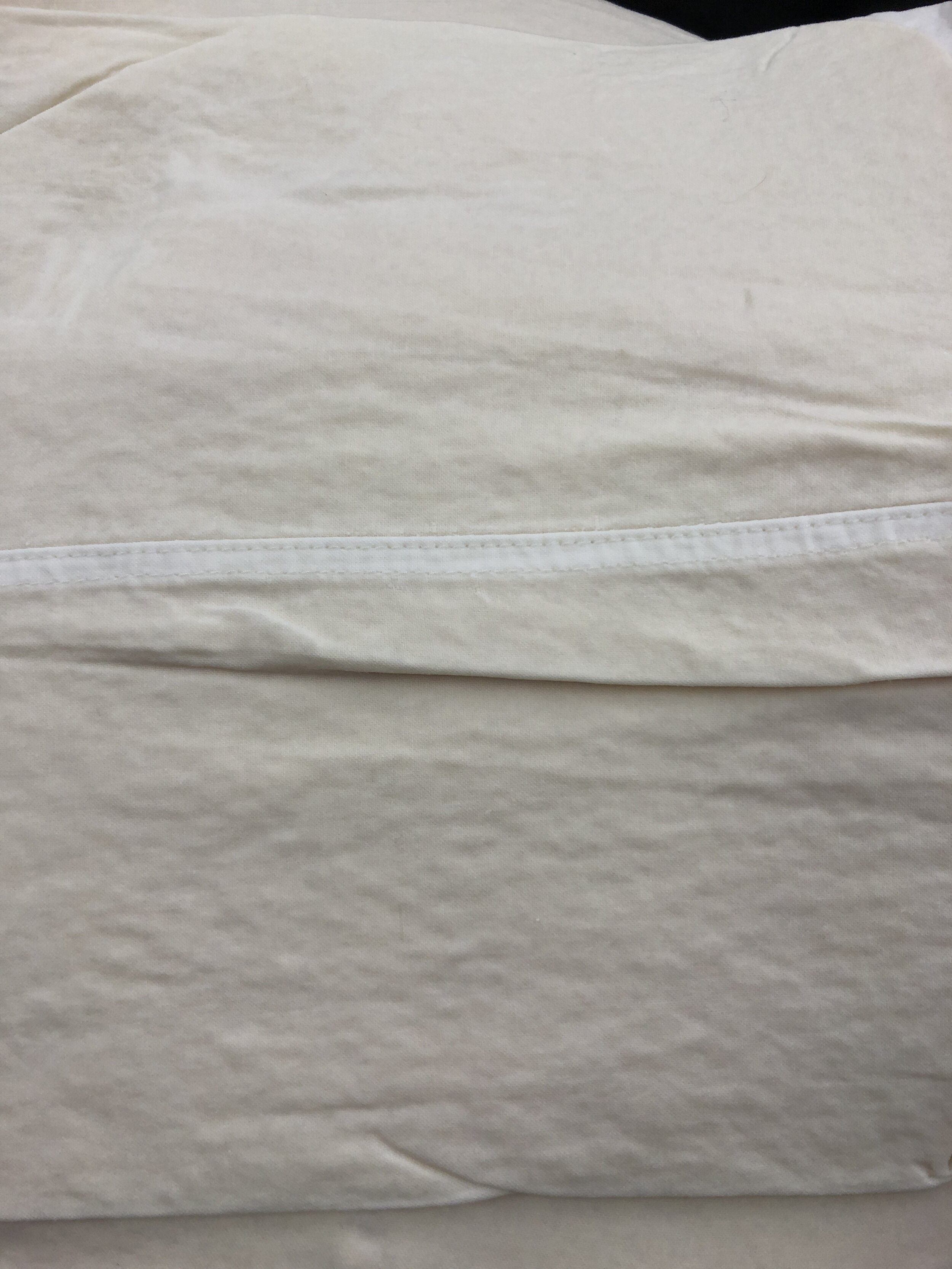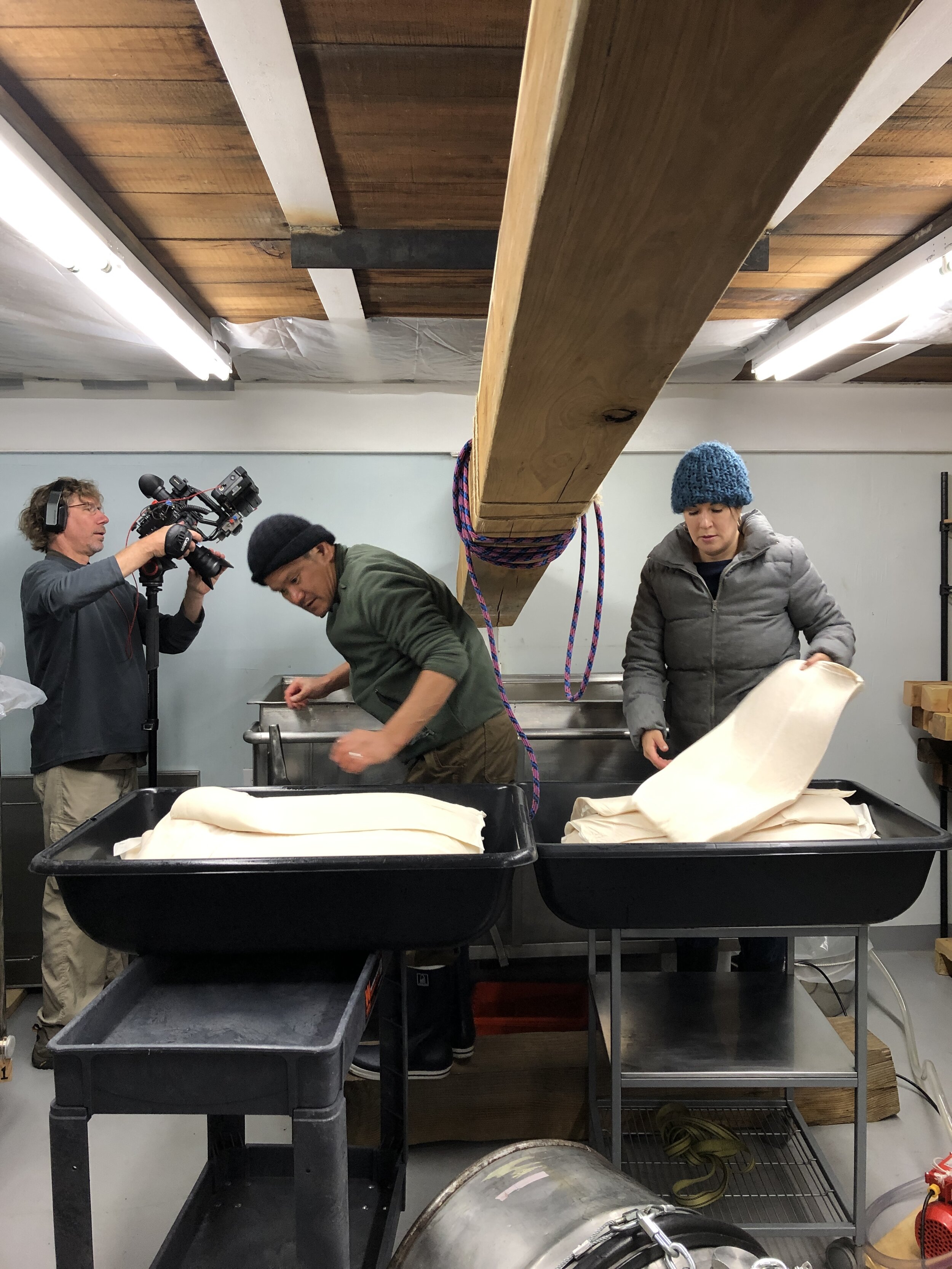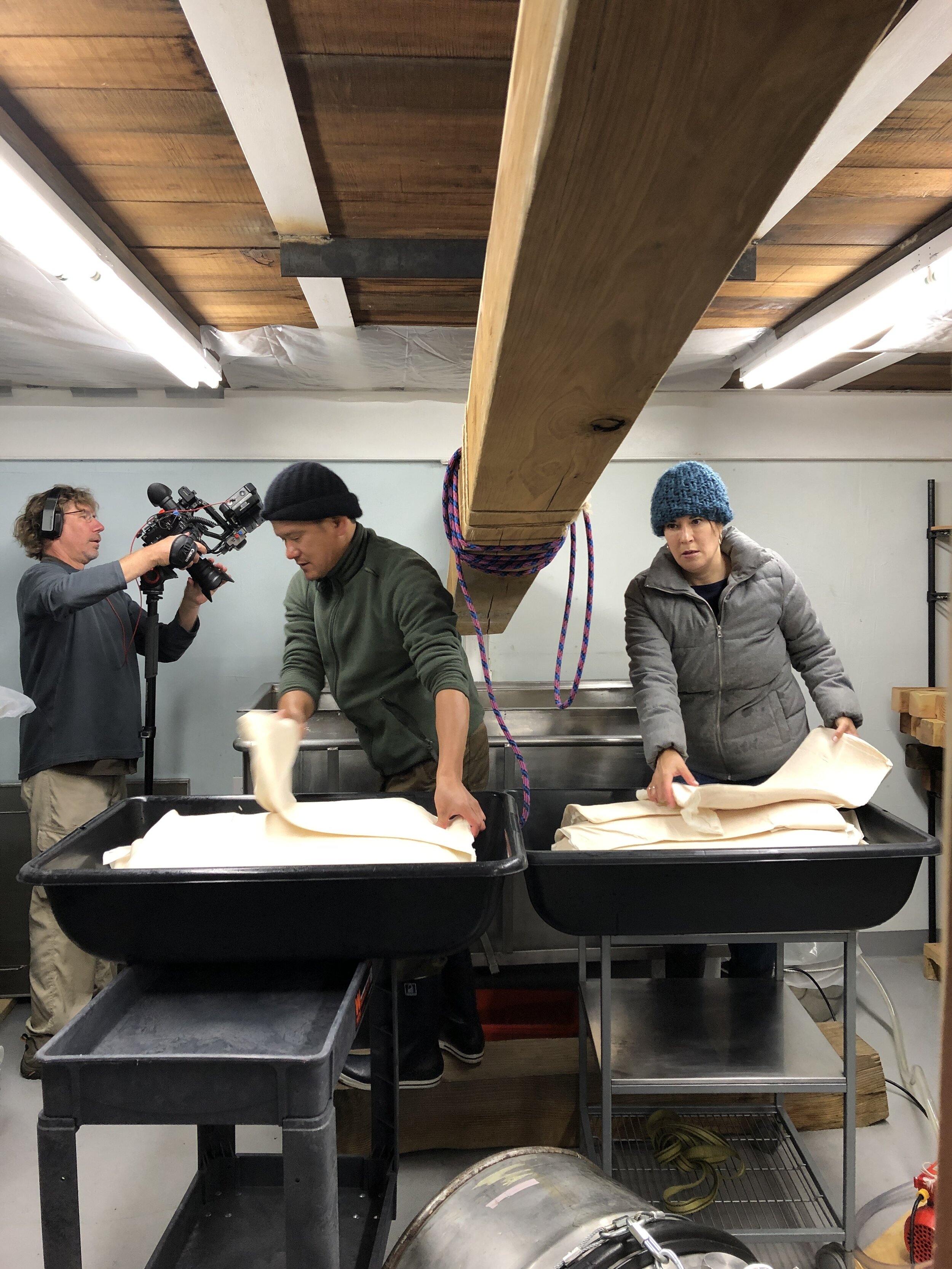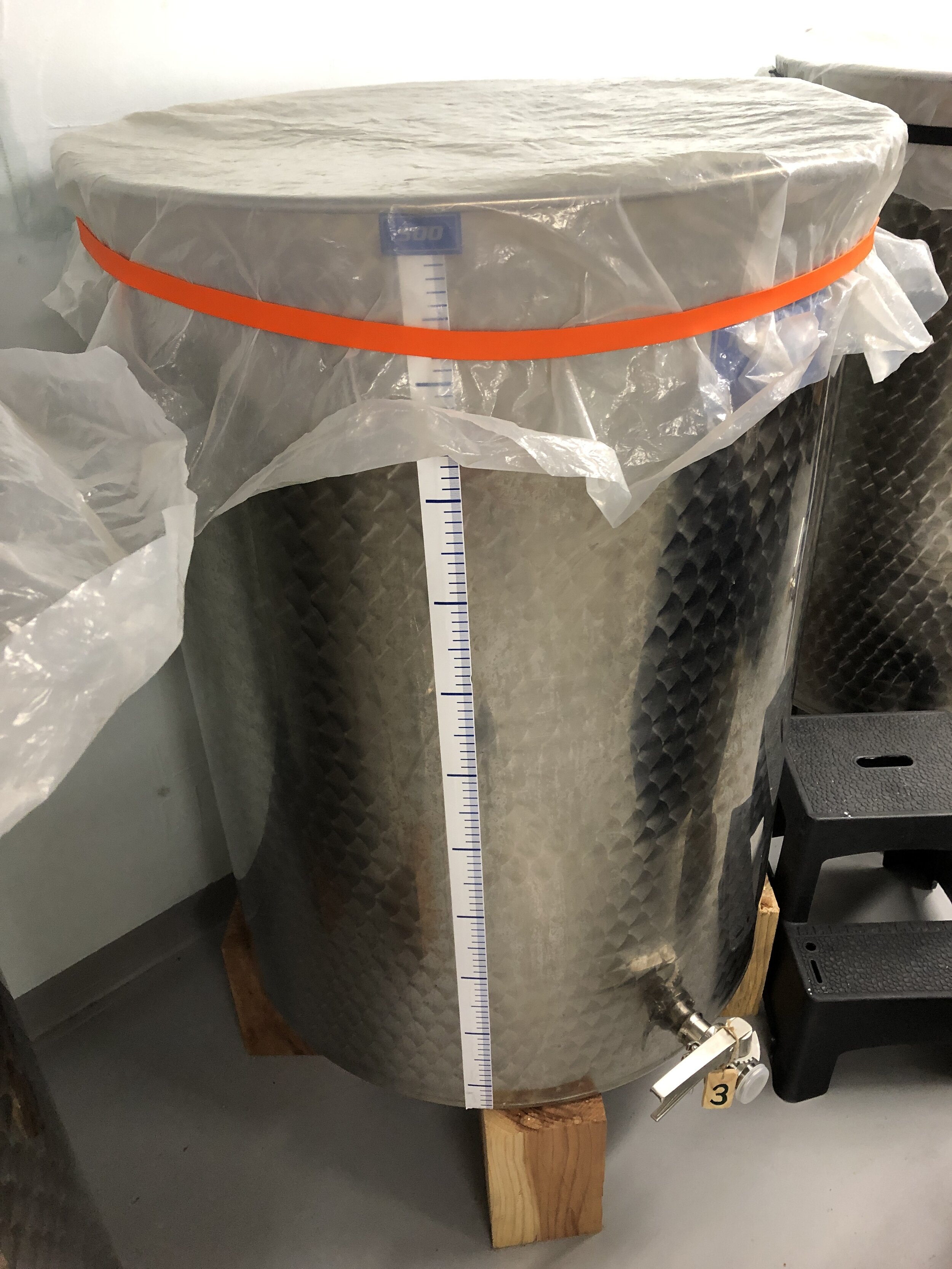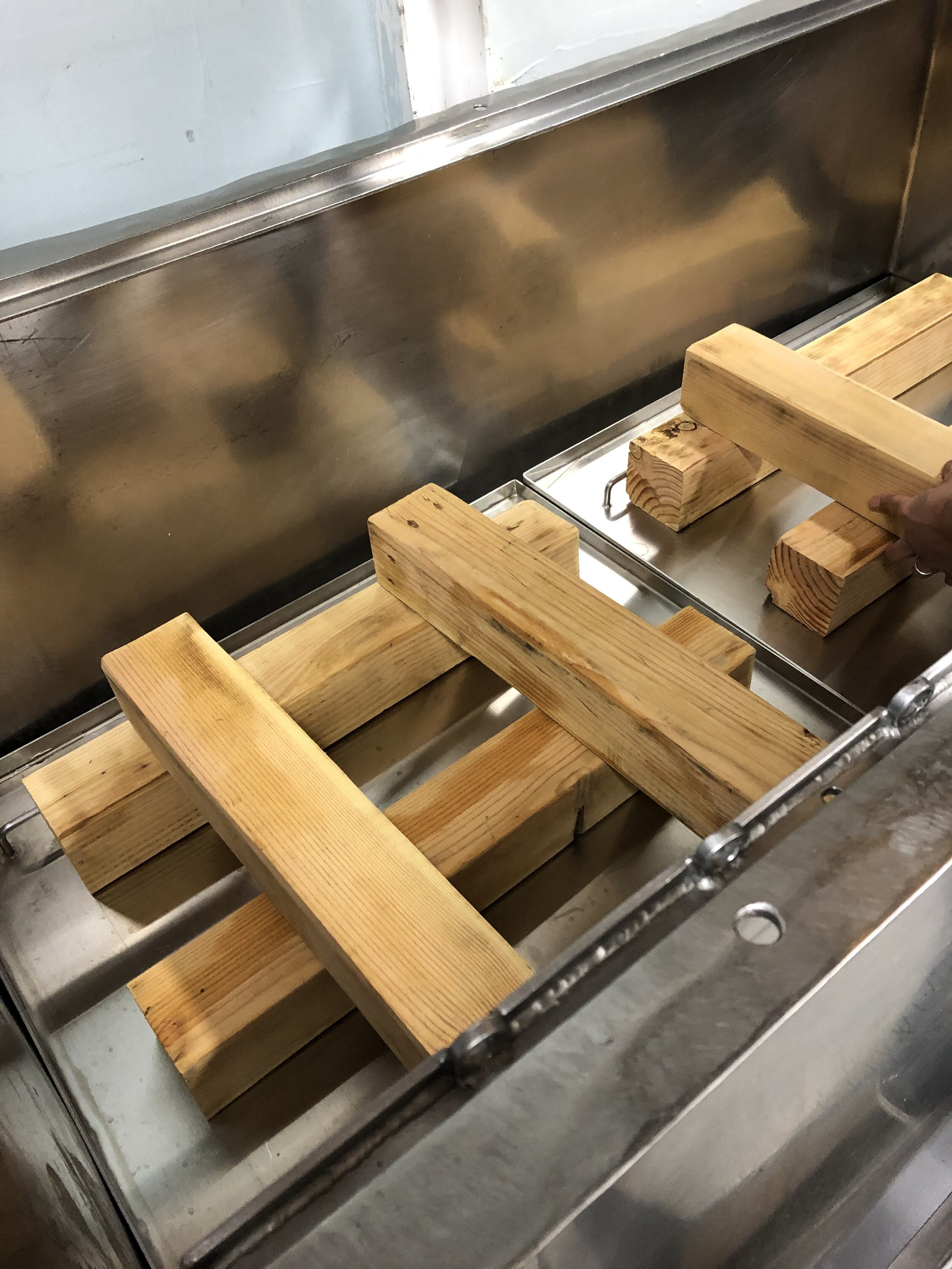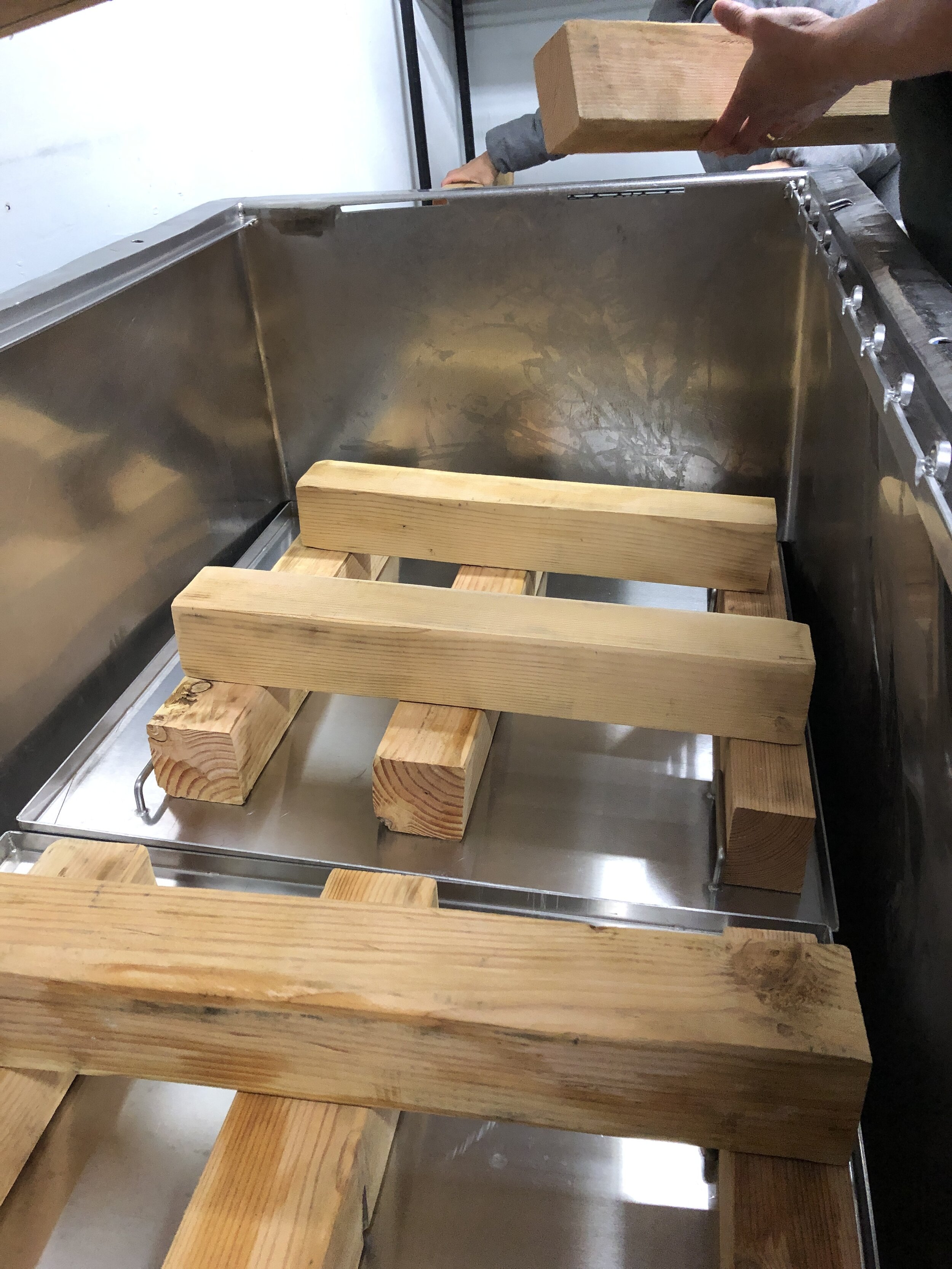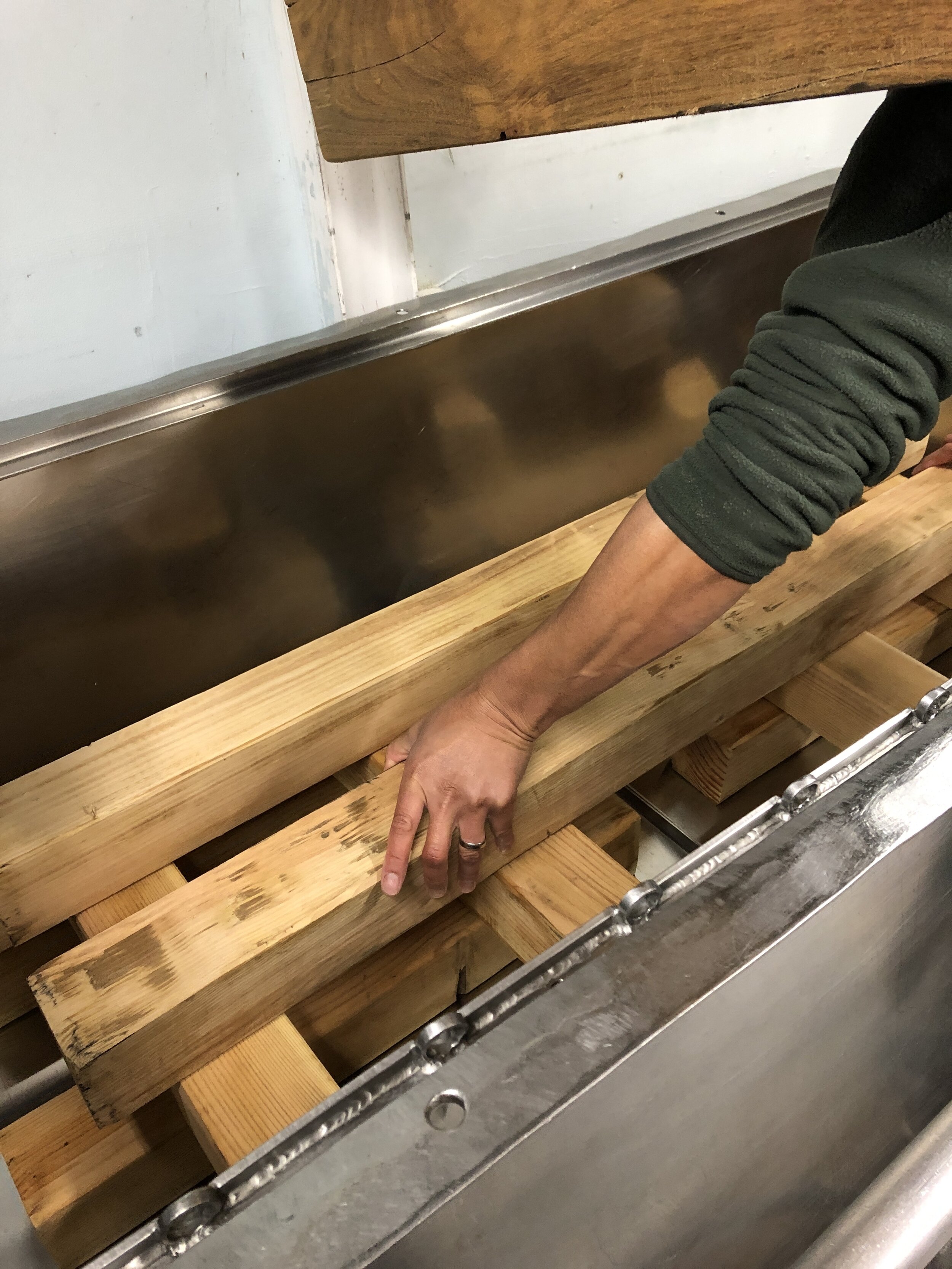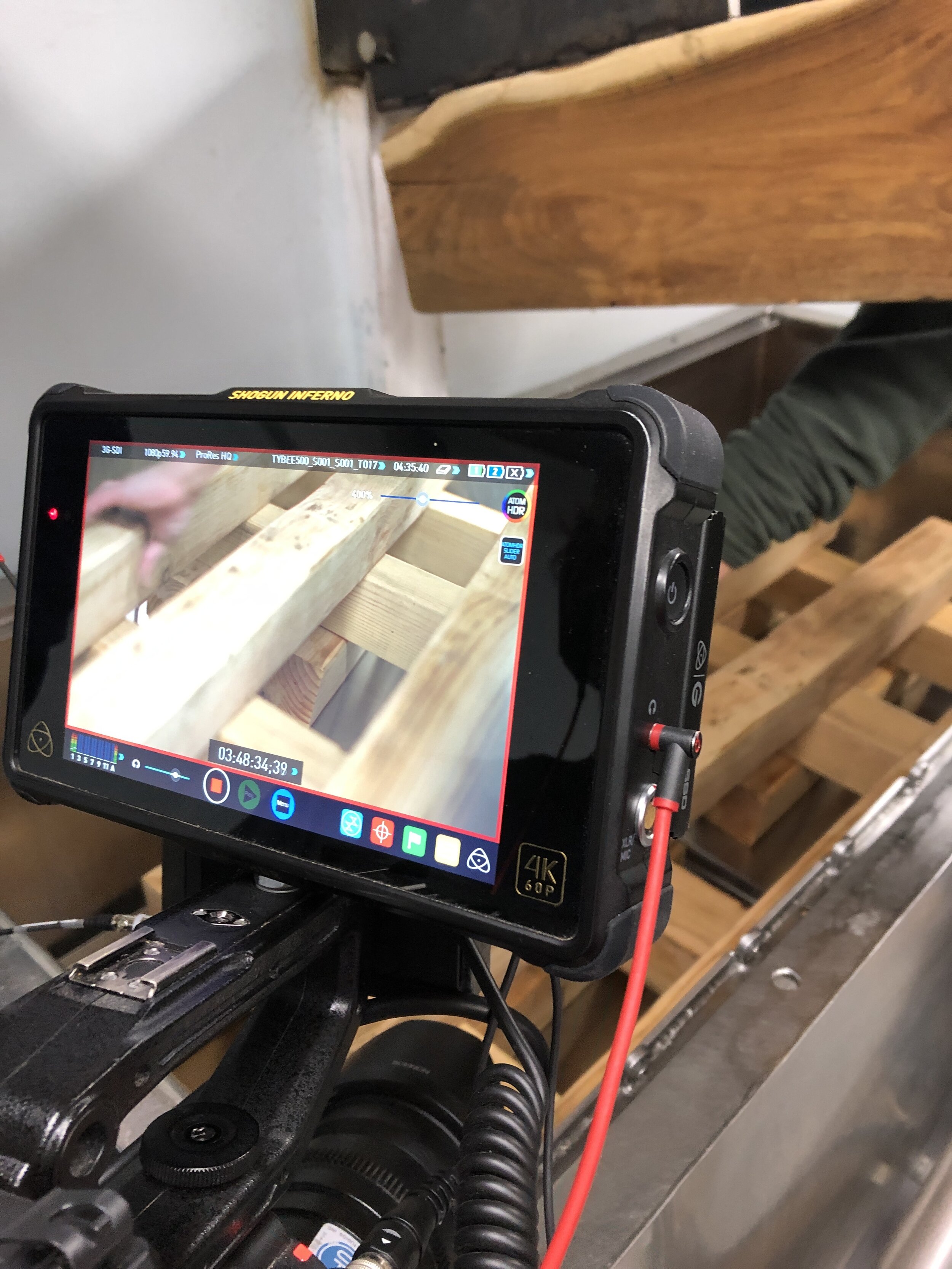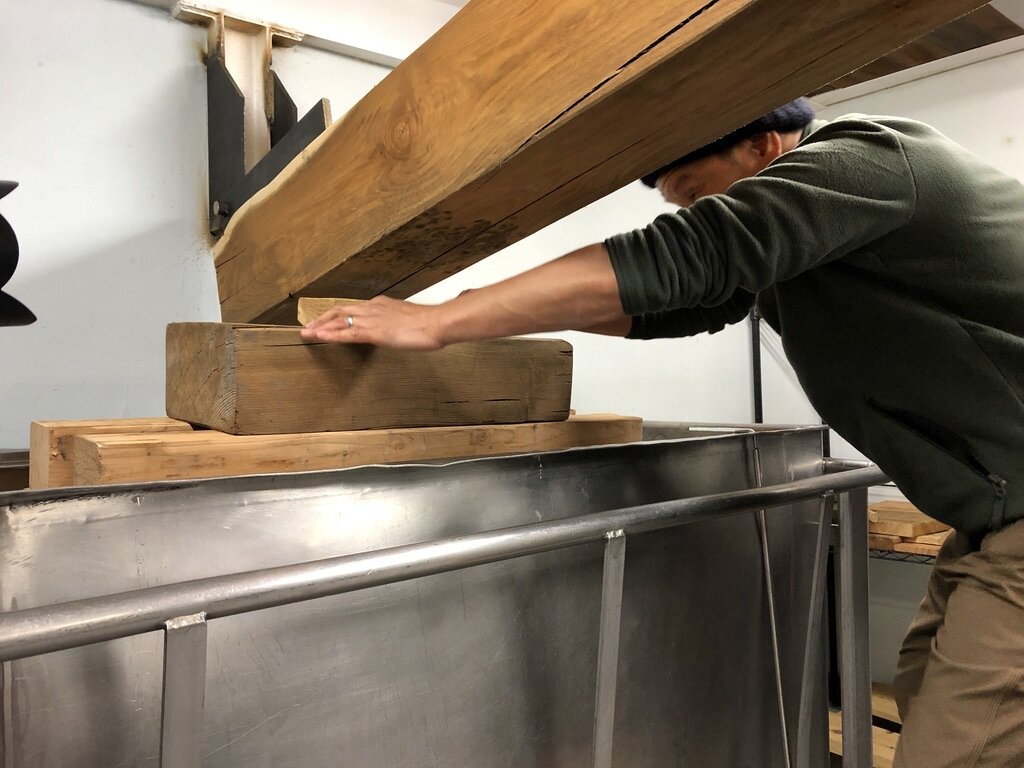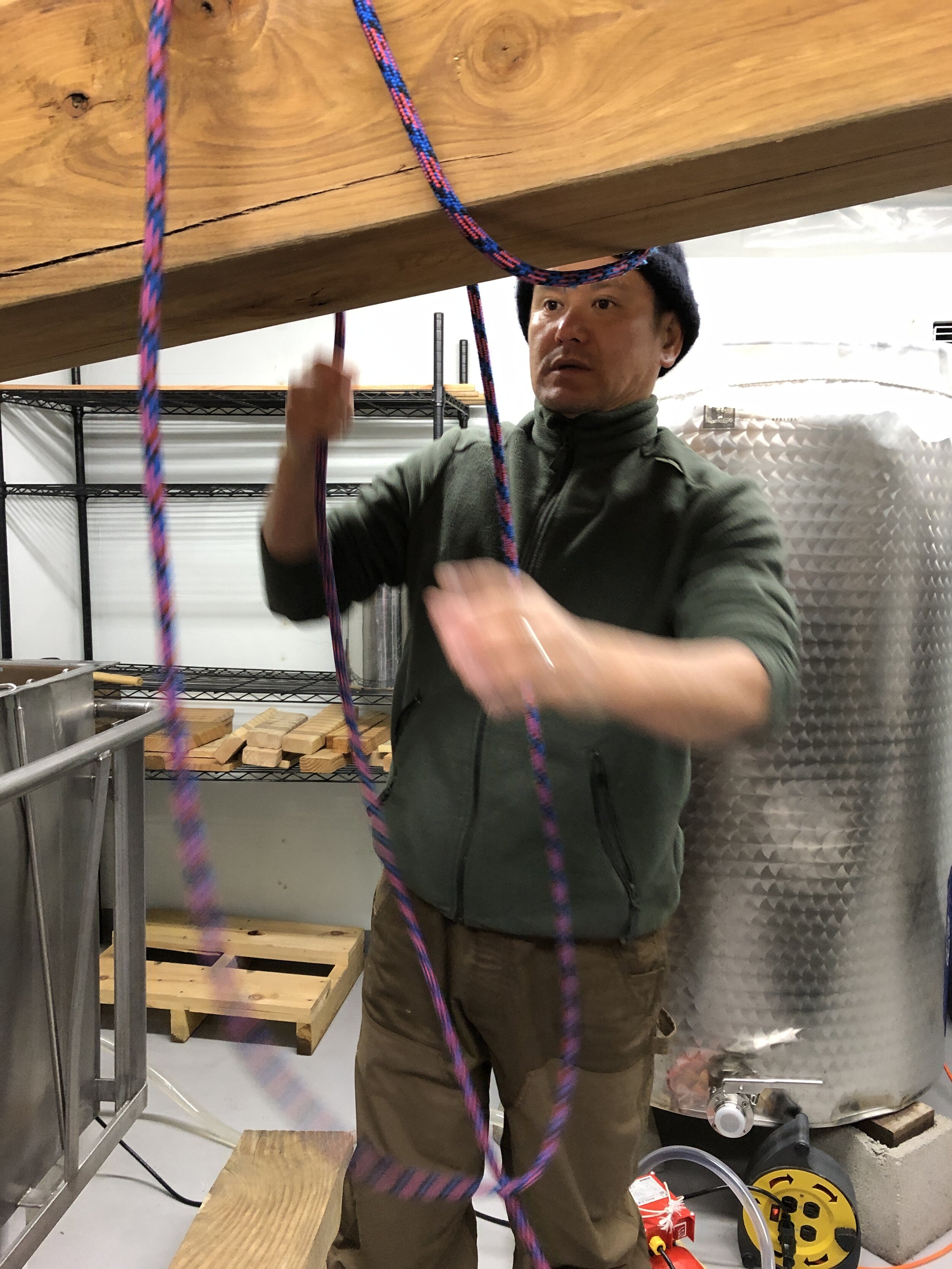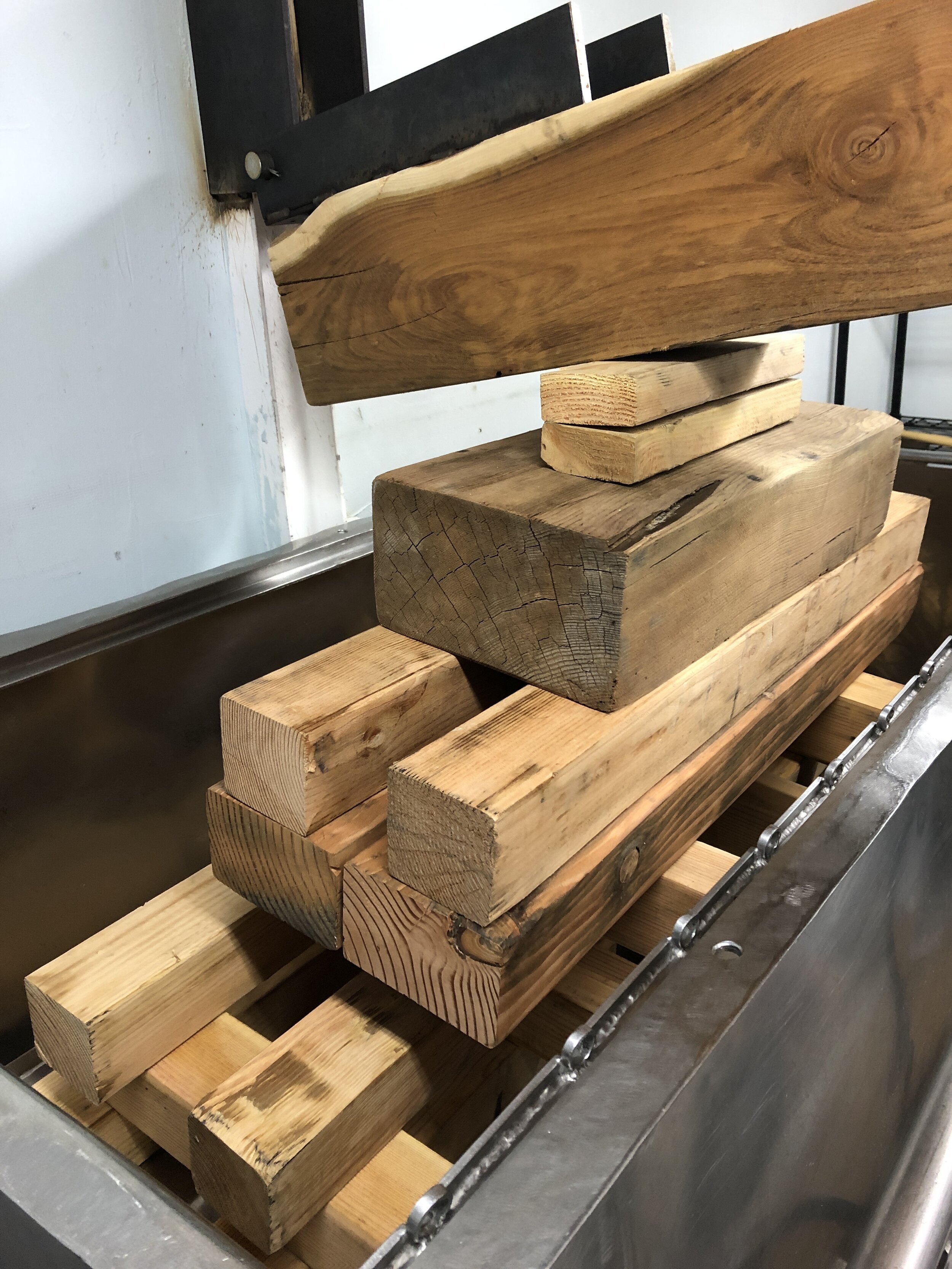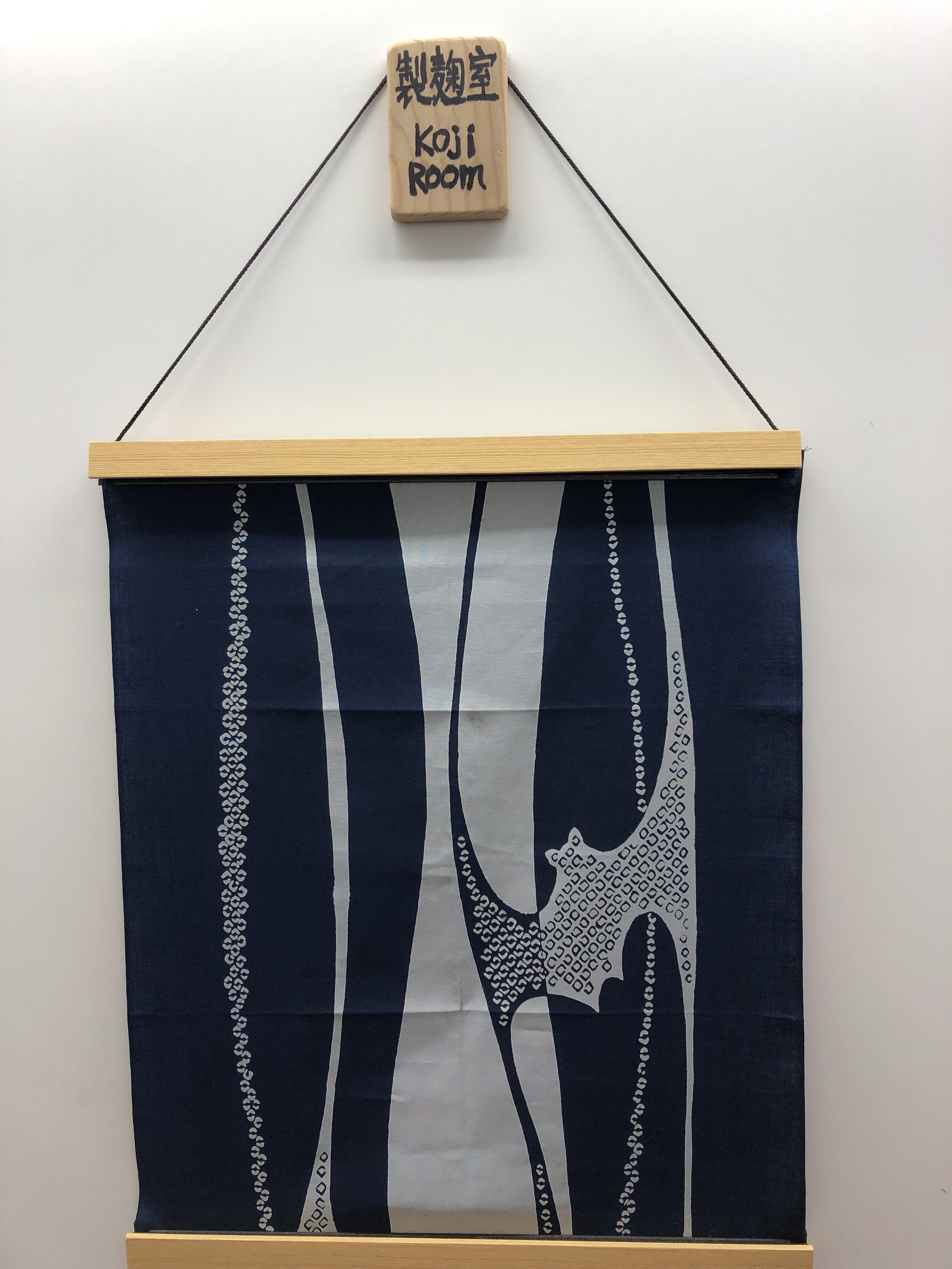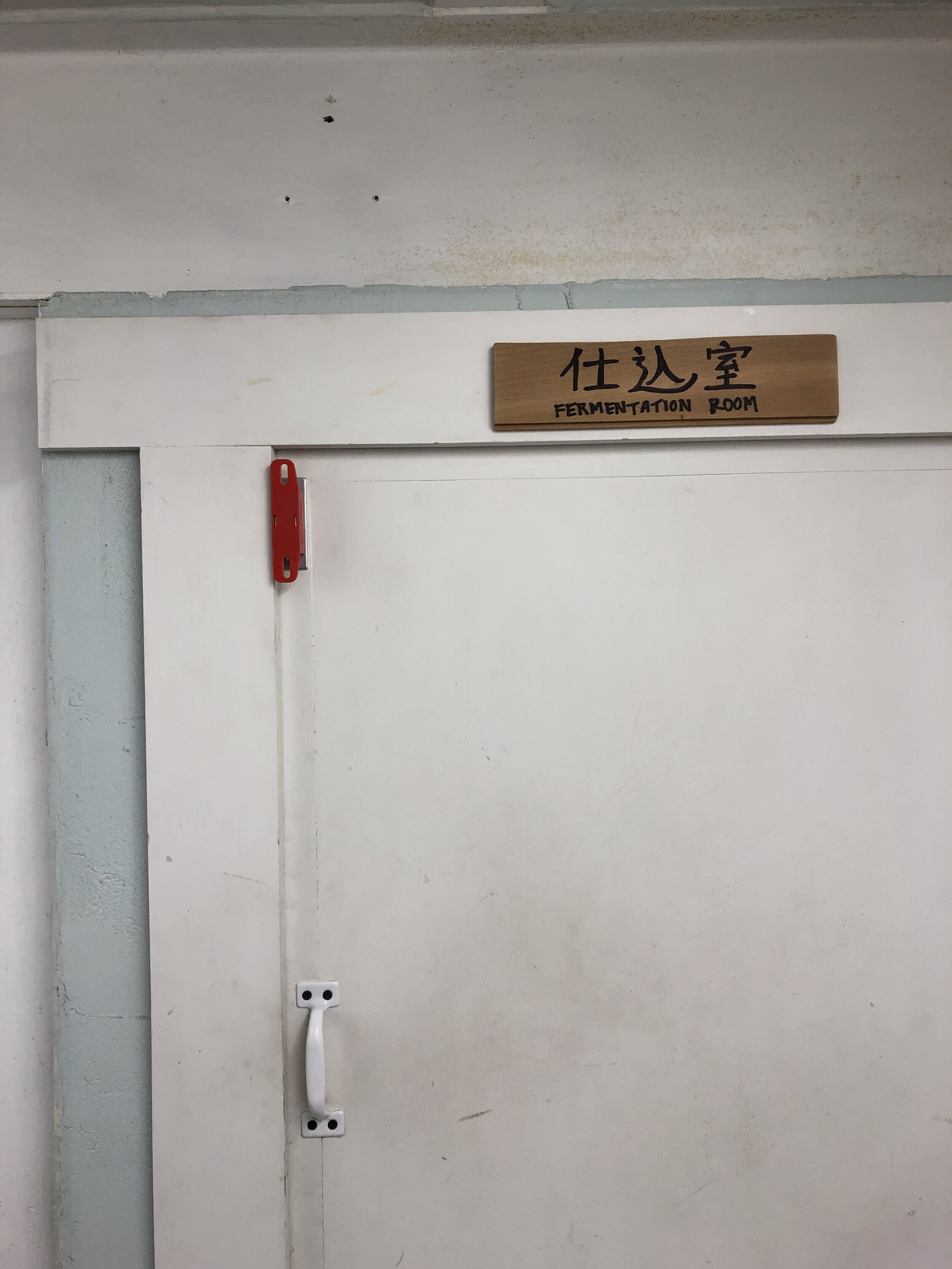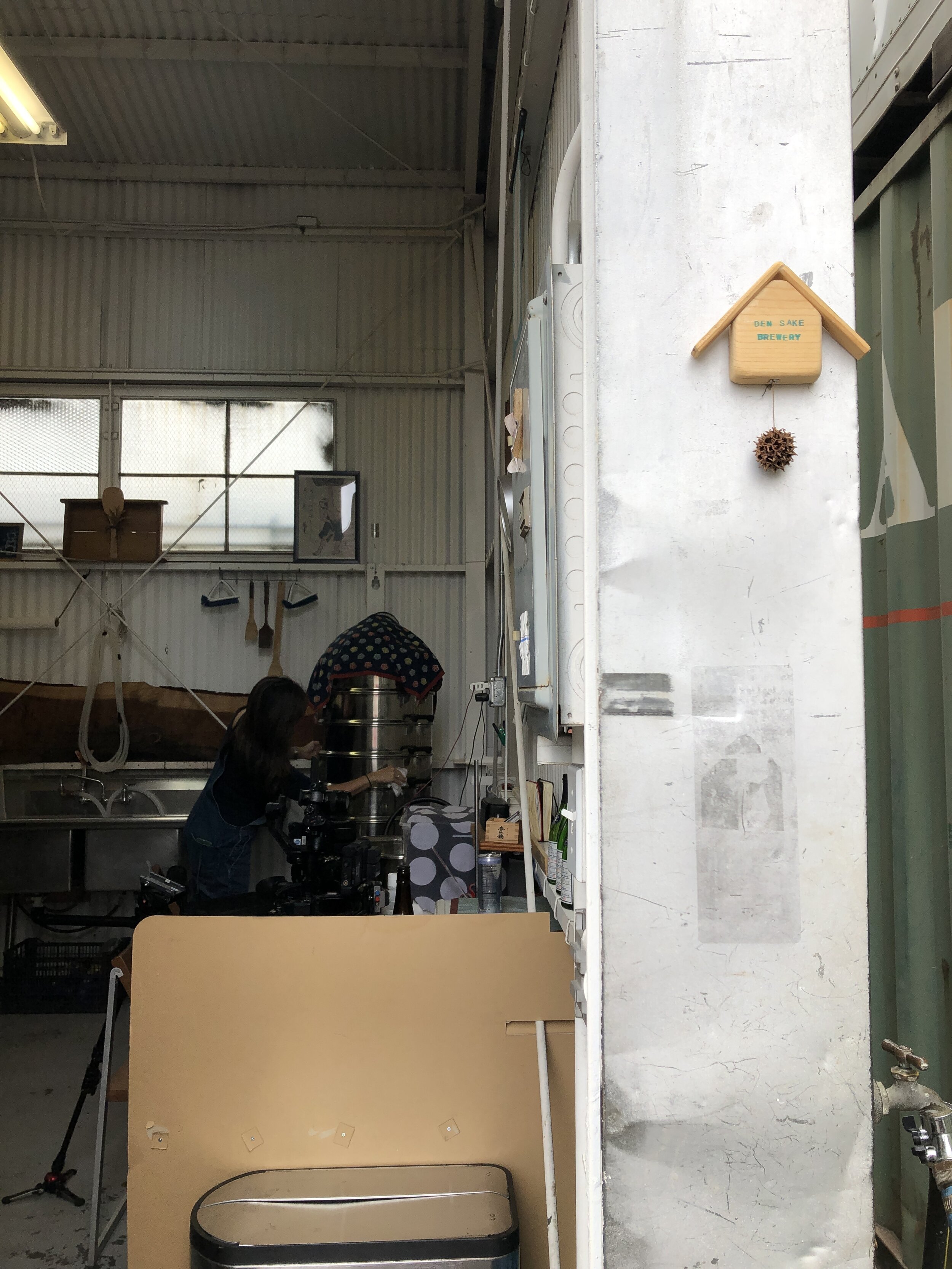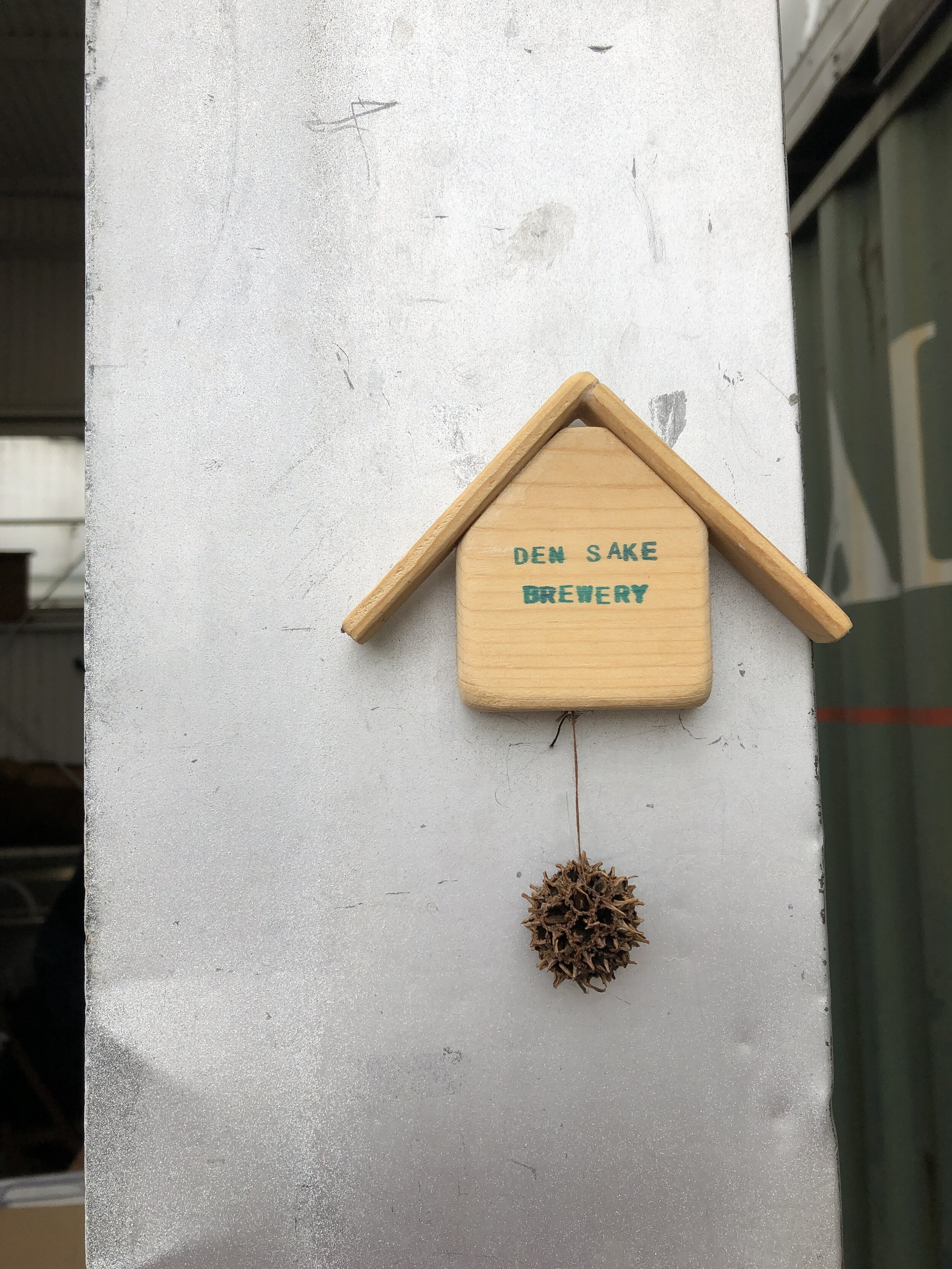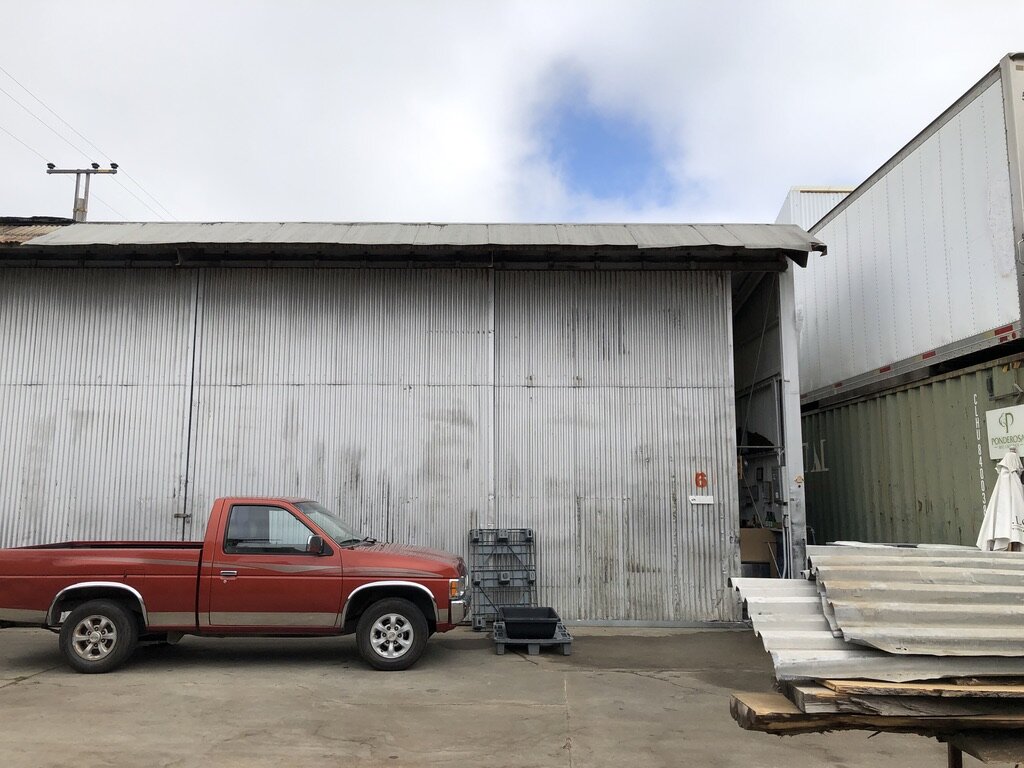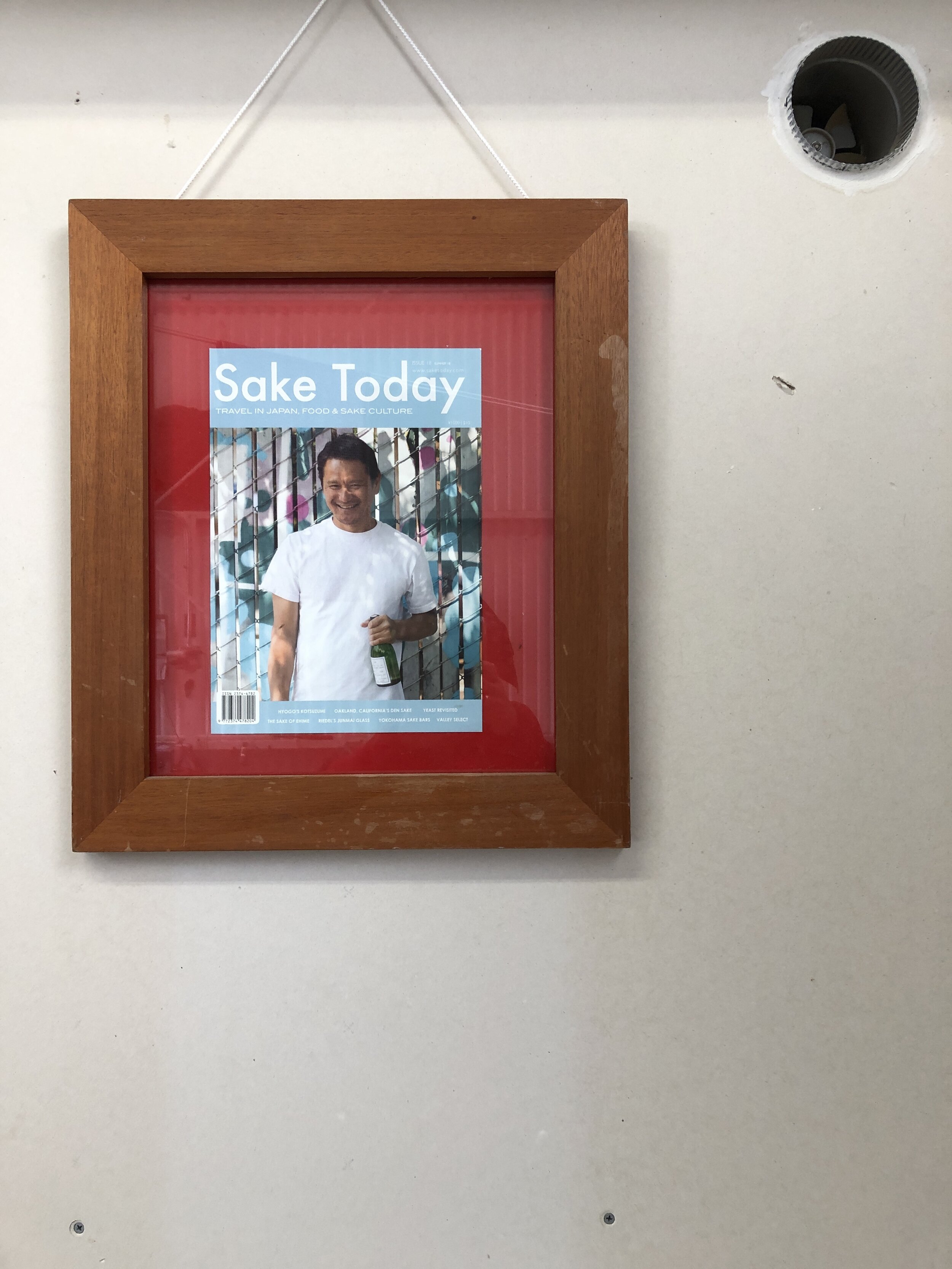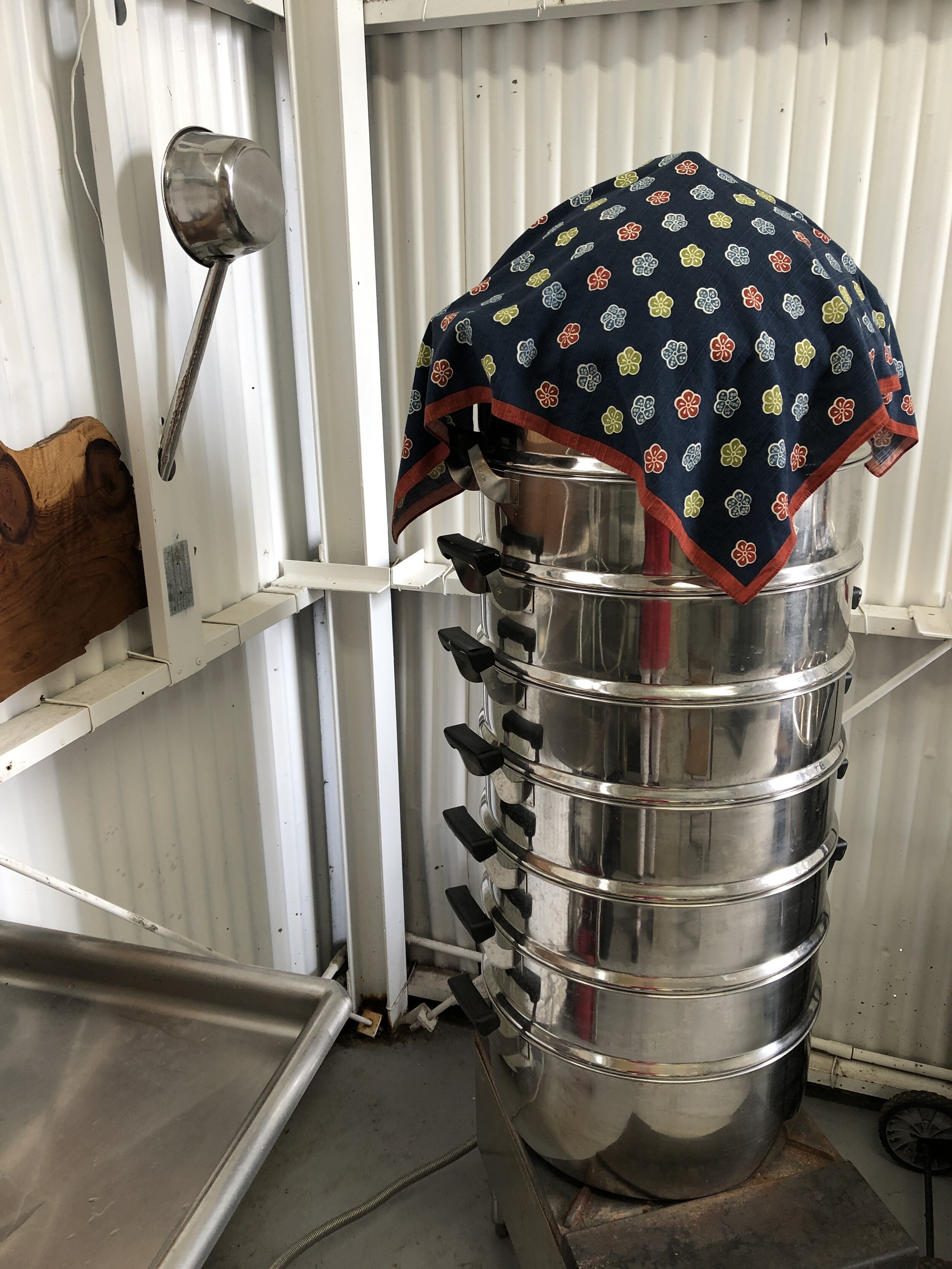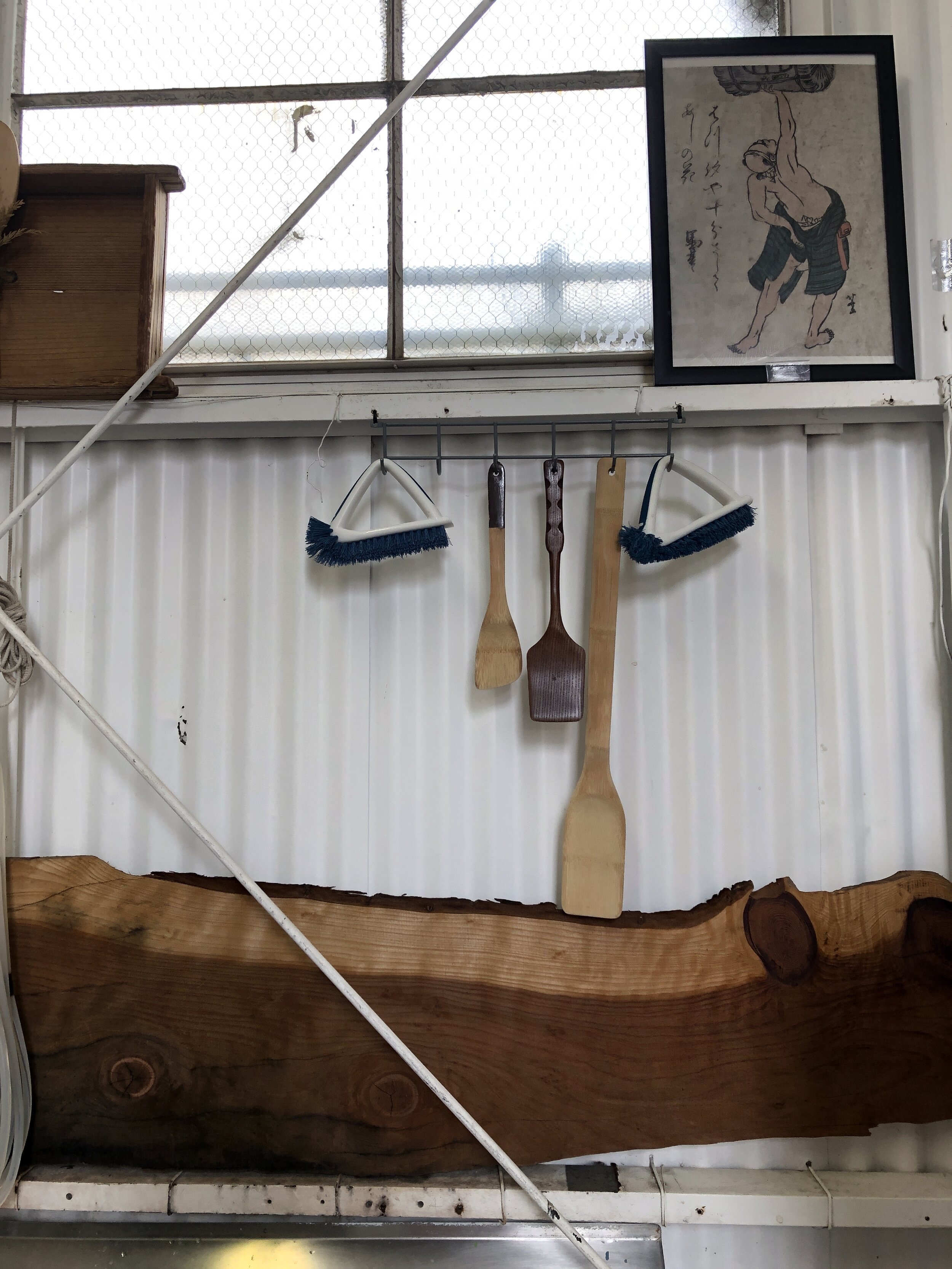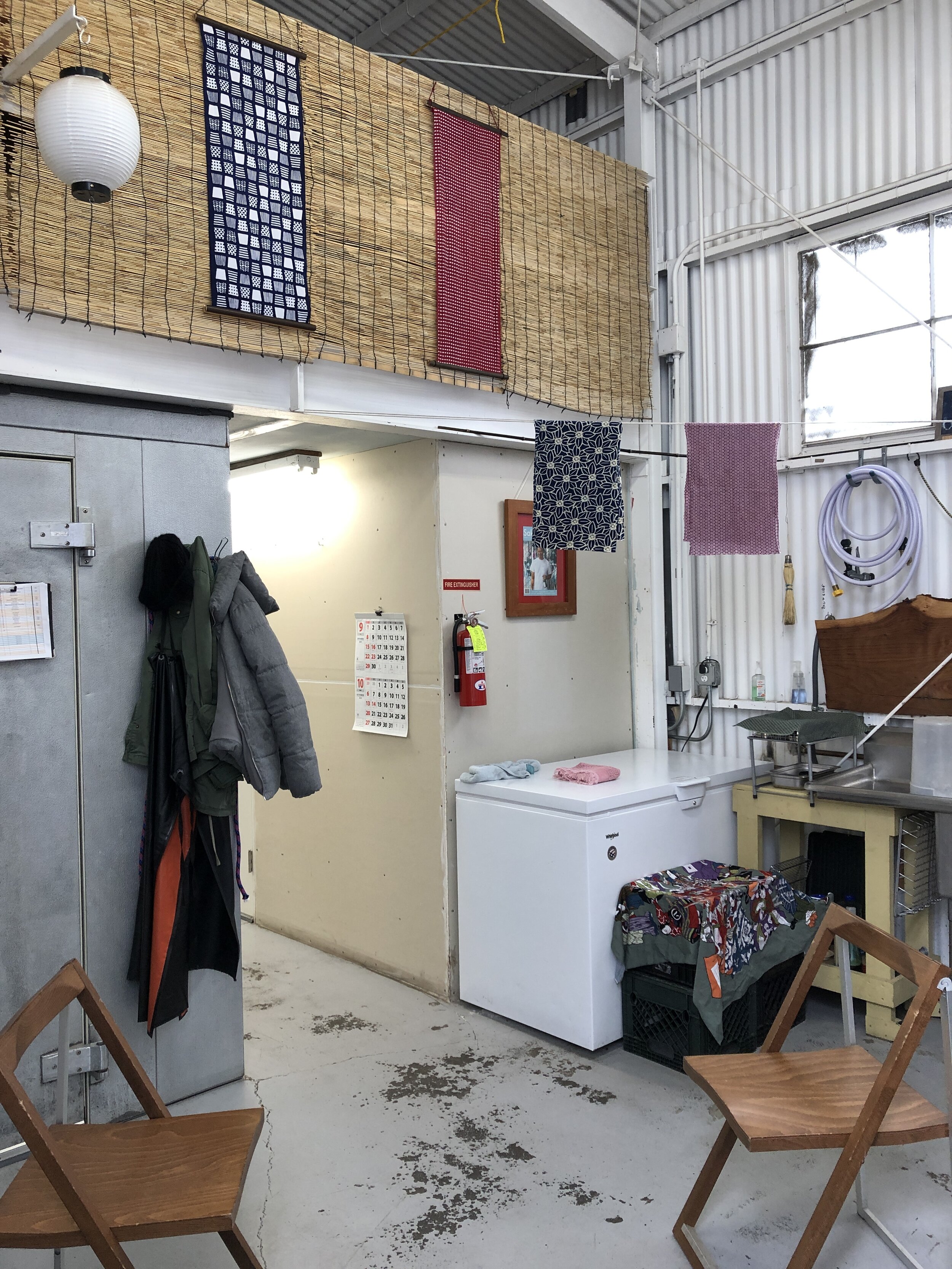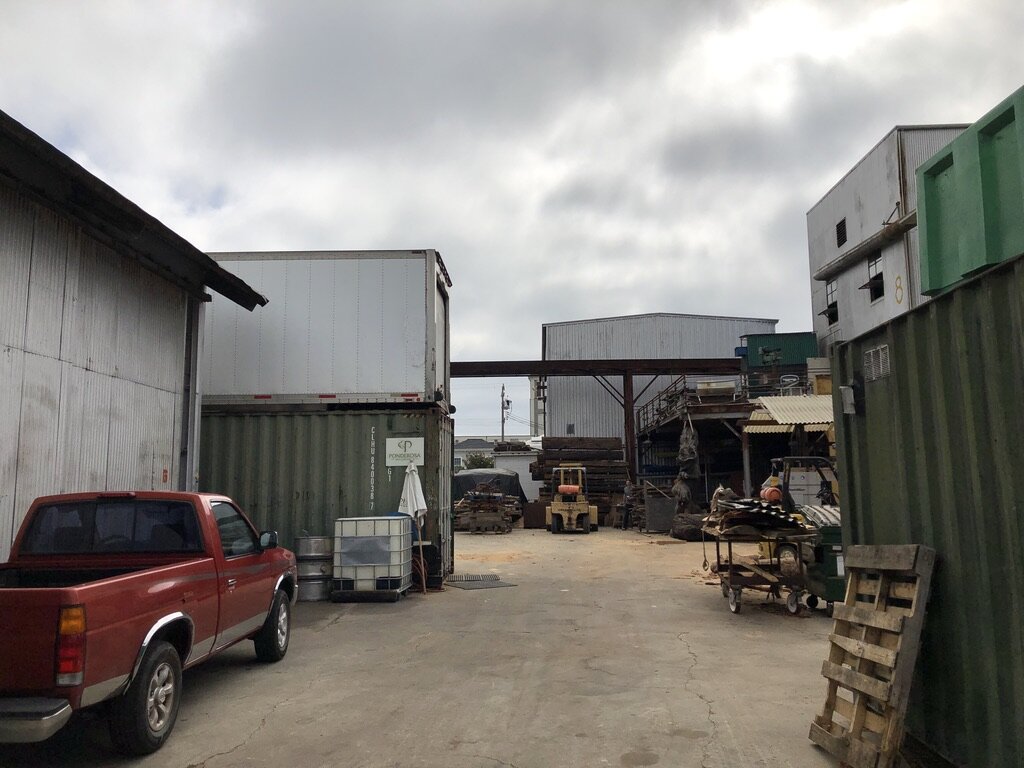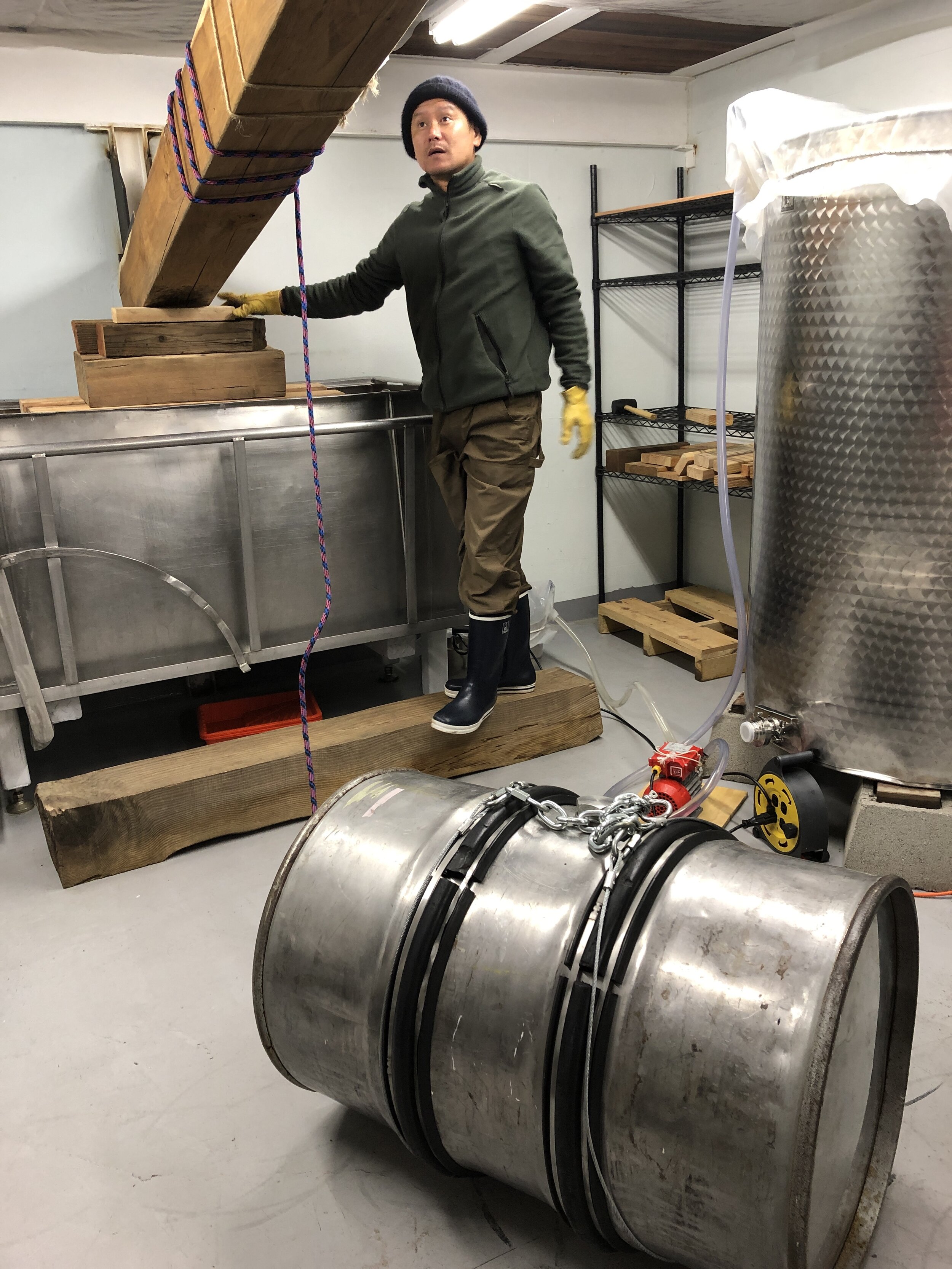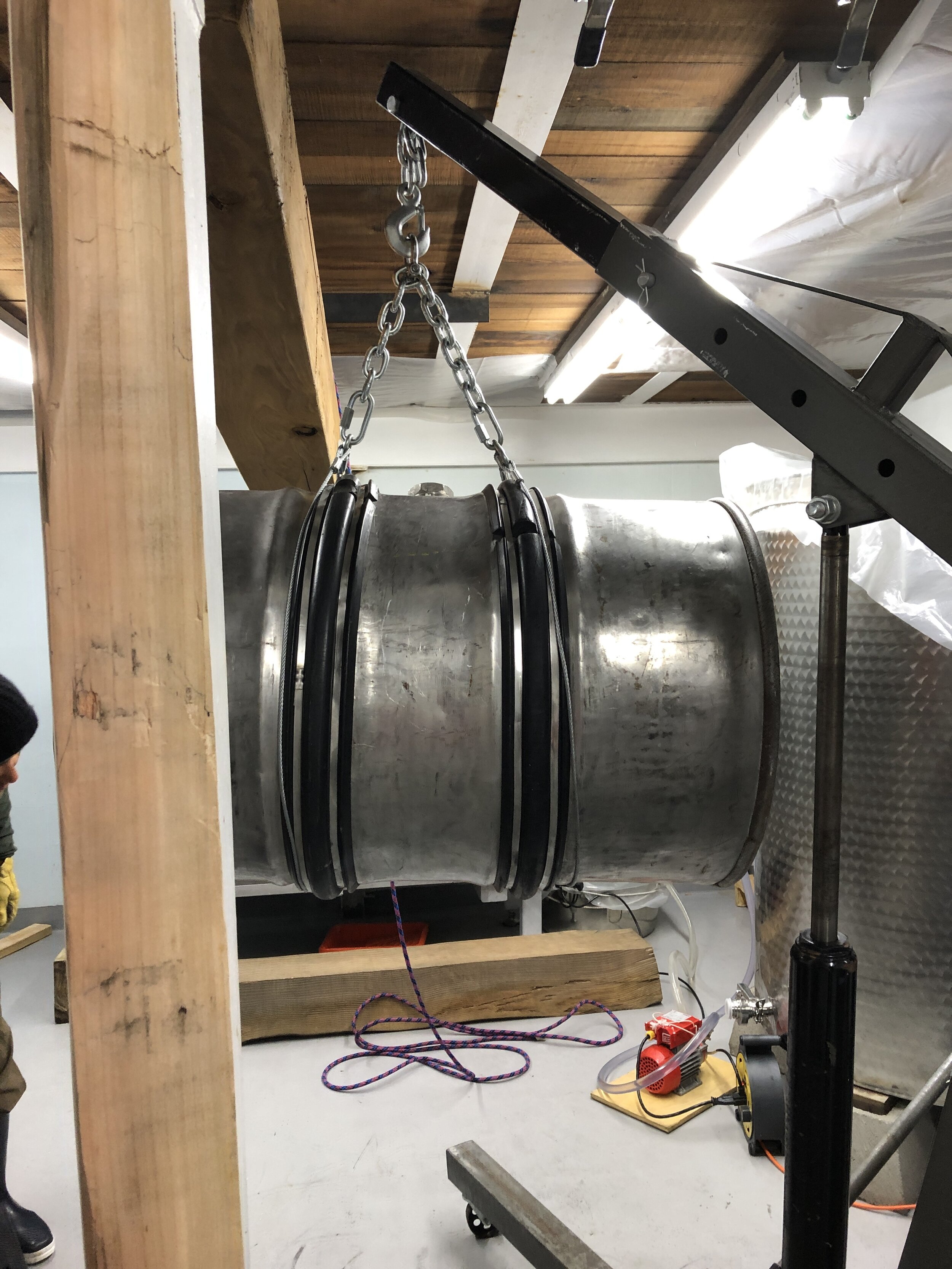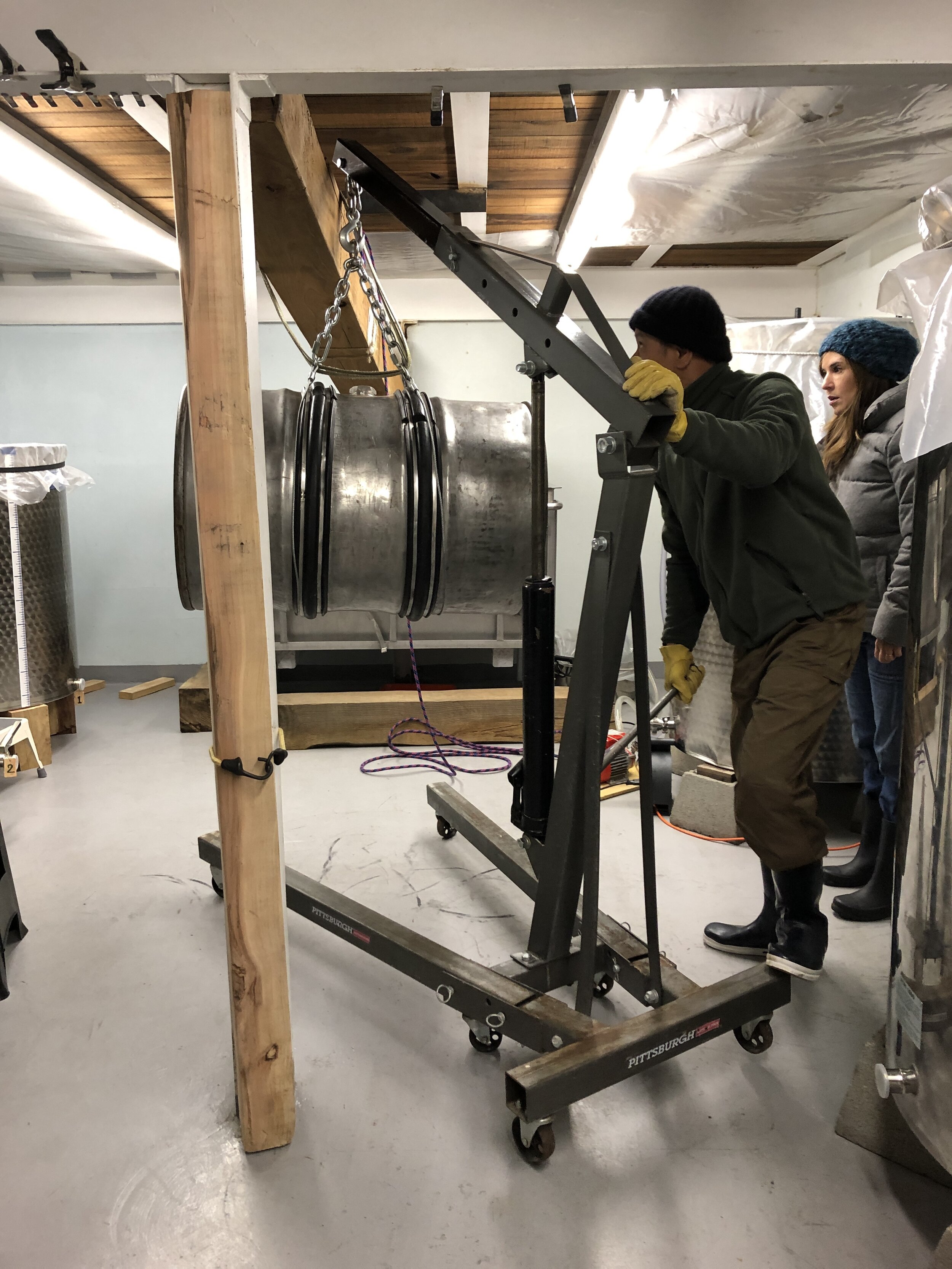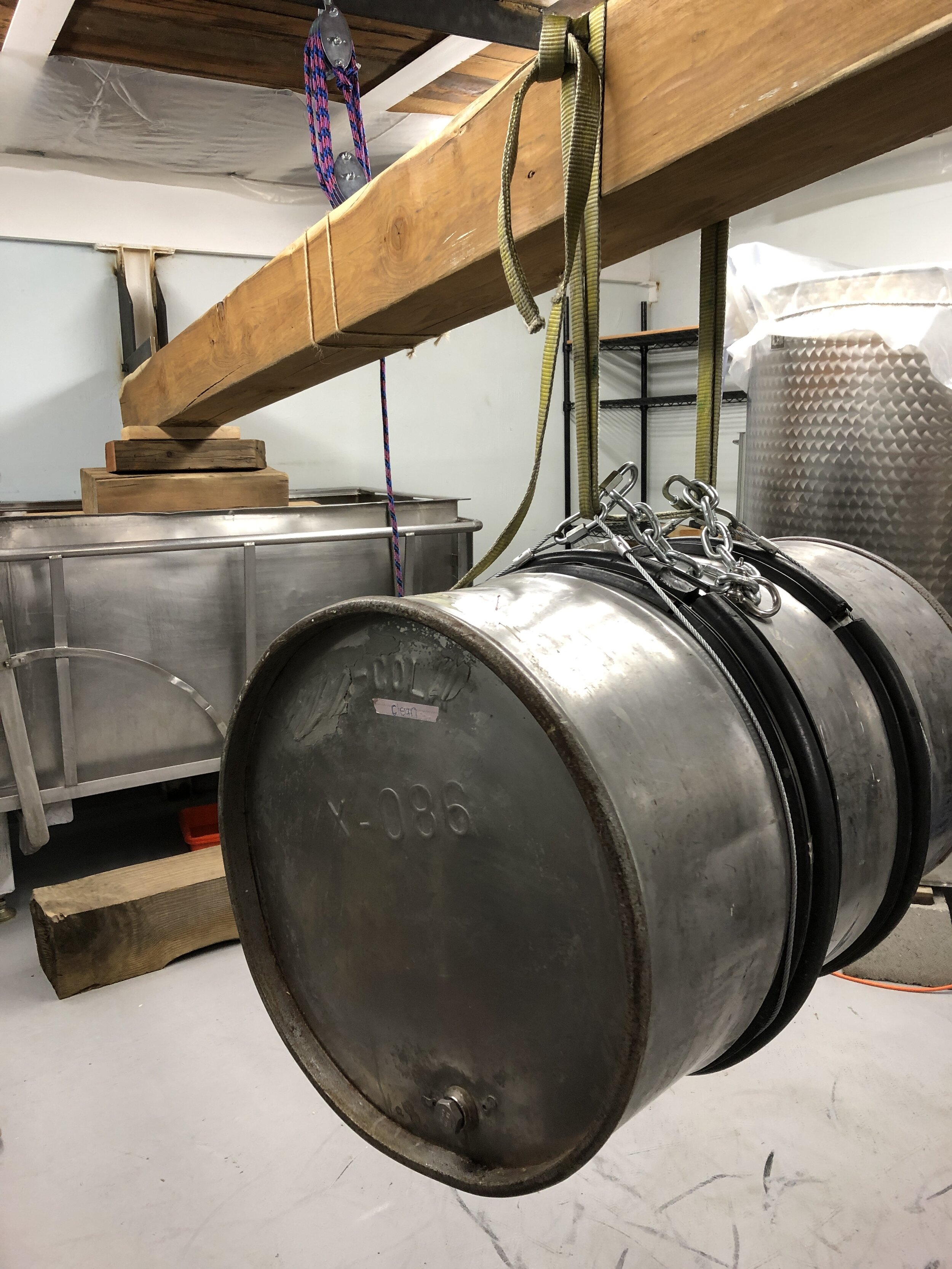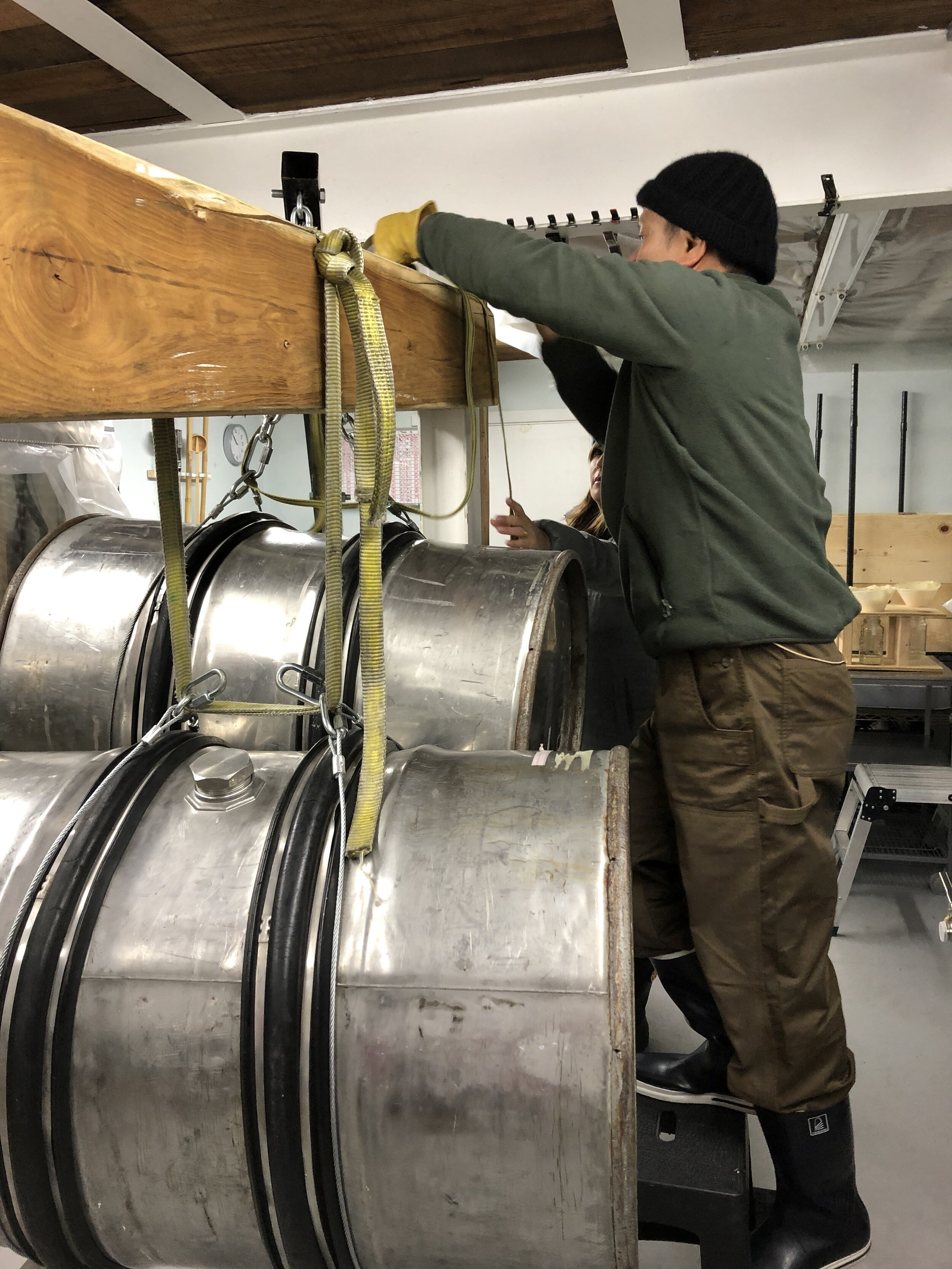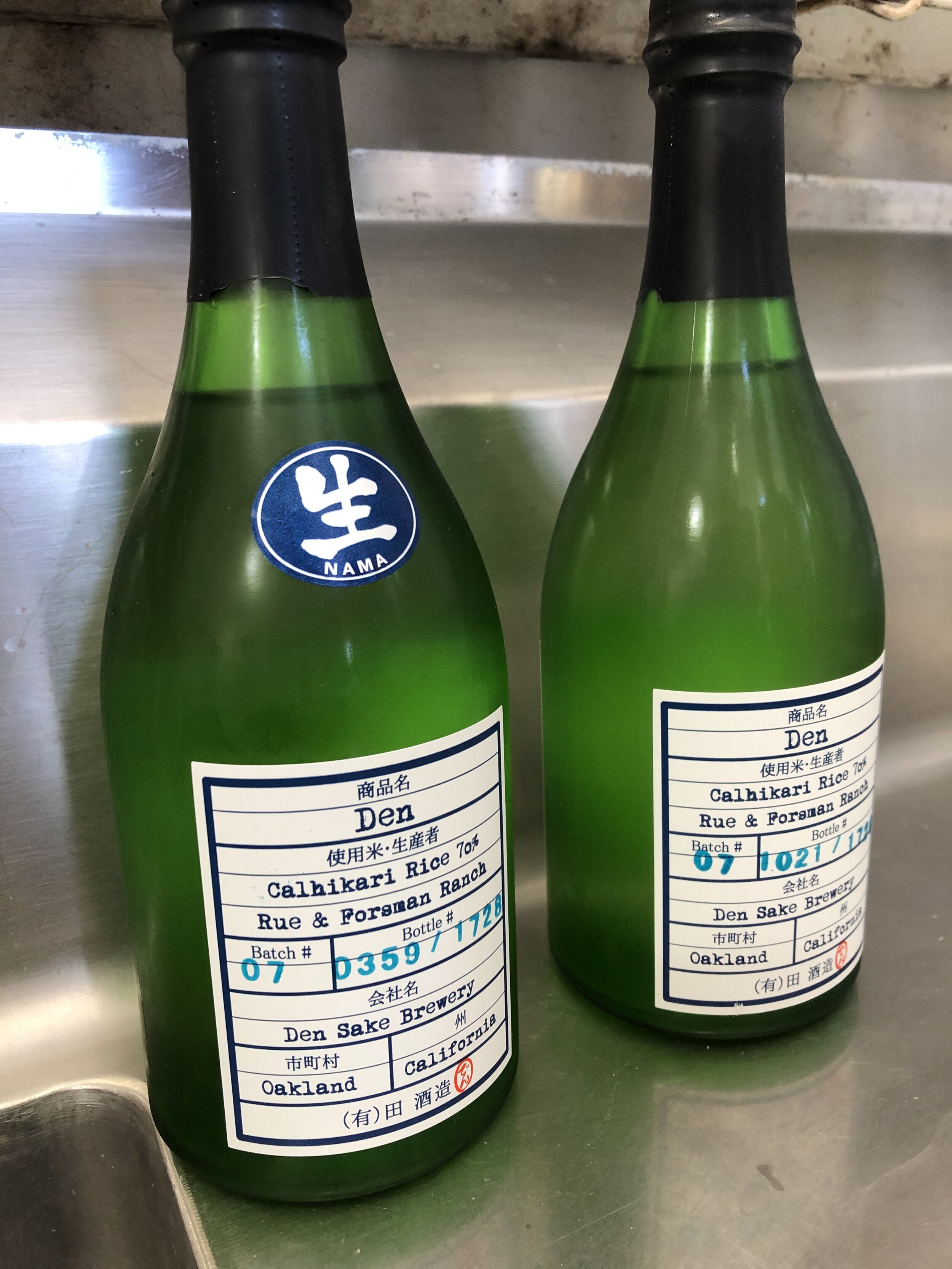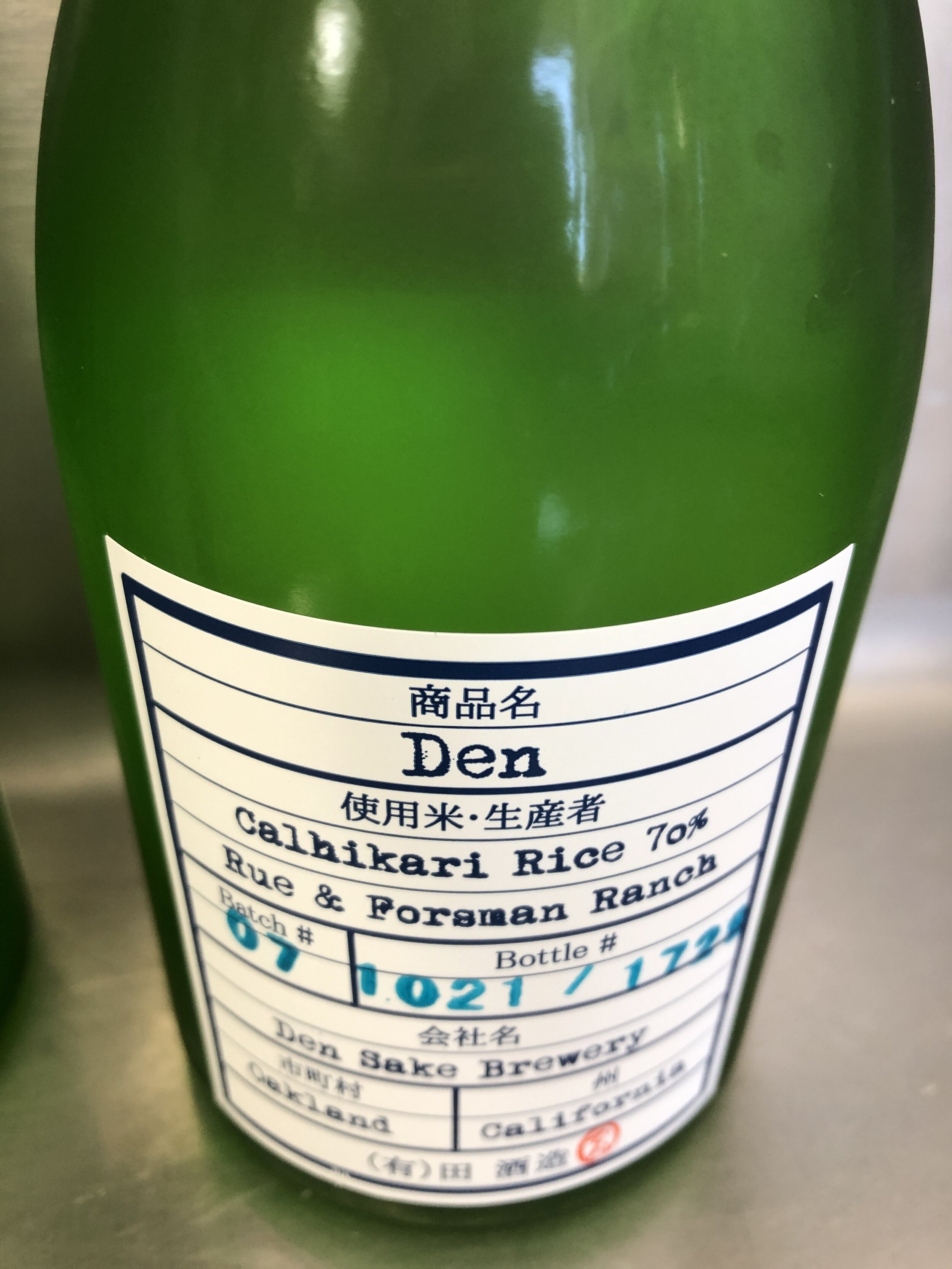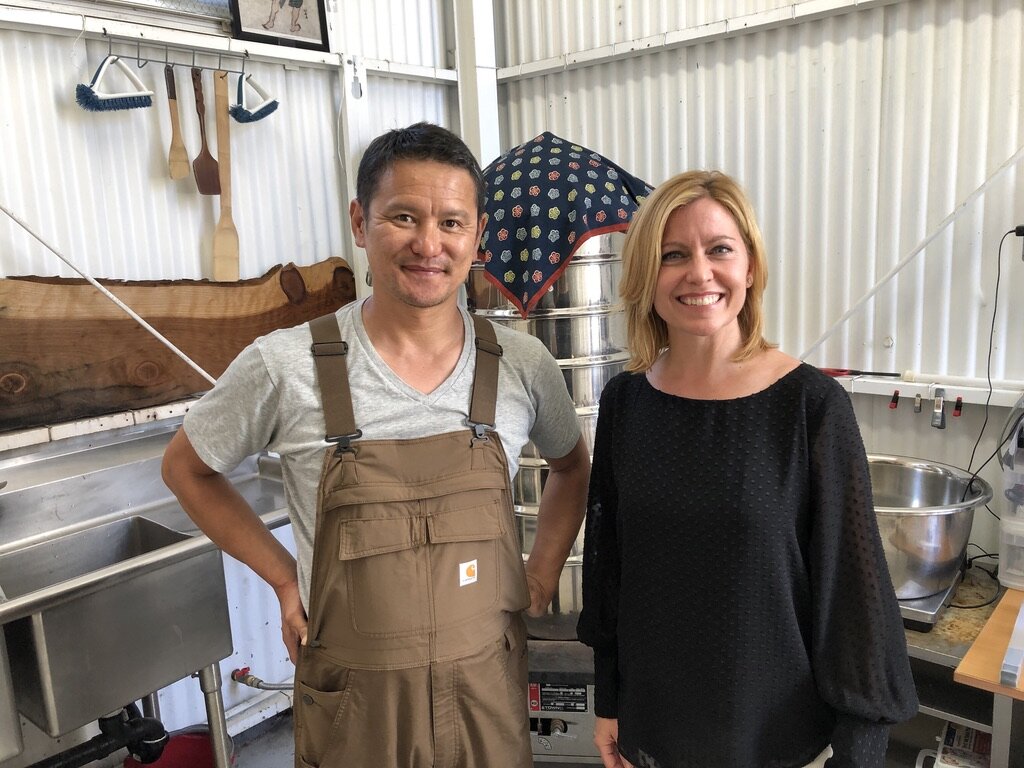Inside Den Sake's Oakland-based brewery
Tucked inside O2 Artisans Aggregate, where makers operate progressive businesses, sharing resources and focusing on sustainable, environmentally sensitive practices, Yoshi Sako is crafting small batches of junmai sake using rice from a single California farm.
Yoshi is focused on creating sake that is food friendly, and judging from the incredible places that feature Den Sake on their menus, he’s hit it out of the park.
The brewery itself is small, only identified by a tiny wooden house with a spiky ginko seed pod dangling to represent the traditional sugidama, cedar balls that are hung outside of sake breweries in Japan (read more about the tradition here).
Inside, Yoshi and Lani meticulously craft each batch of sake by hand. First, rice is steamed. Most of the steamed rice is put directly into tanks, but some of it is brought into the koji room where it is inoculated goes through a process called saccharification, which turns the starch inside the rice into glucose. The saccharified rice is then added into the tanks along with good old Oakland tap water.
When the liquid in the tanks is fully fermented, it is transferred to a system where the liquid is drained off of the rice. Yoshi uses a traditional wooden press to squeeze every last drop of liquid from the rice. Here, you can see him tapping the wooden blocks into place. Yoshi will hang water-filled barrels weighing hundred of pounds from the long, square pole that extends from the press, using leverage to create an incredible amount of pressure.
The lees, or sake kasu, from this process will not be discarded. This material is what’s leftover from the sake-making process and it has the sweet, earthy funk of sake — it’s used by chefs to impart umami flavor and complex aroma in everything from soup, like the one made at Rintaro in San Francisco, to a creamy cheese spread that’s on the menu at Soba Ichi, just a few hundred feet away from the brewery in the collective.
Yoshi makes pasteurized and unpasteurized, or nama, junmai sake. The pasteurized sake is lighter and brighter, with a pleasant acidity. The nama sake is more round and soft and complex — my favorite of the two.
Take a tour of Den Sake’s brewery in the photo essay below:
